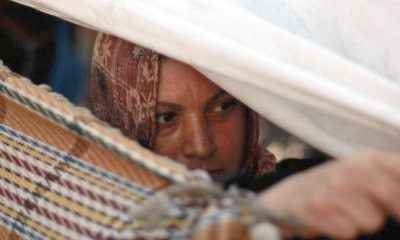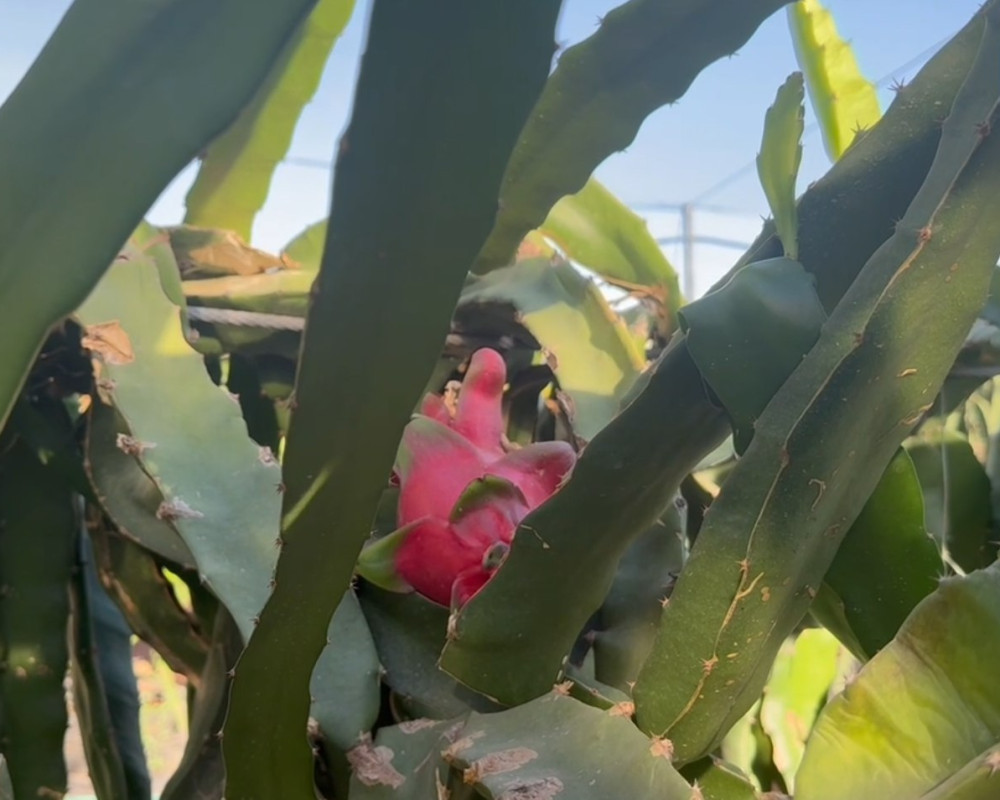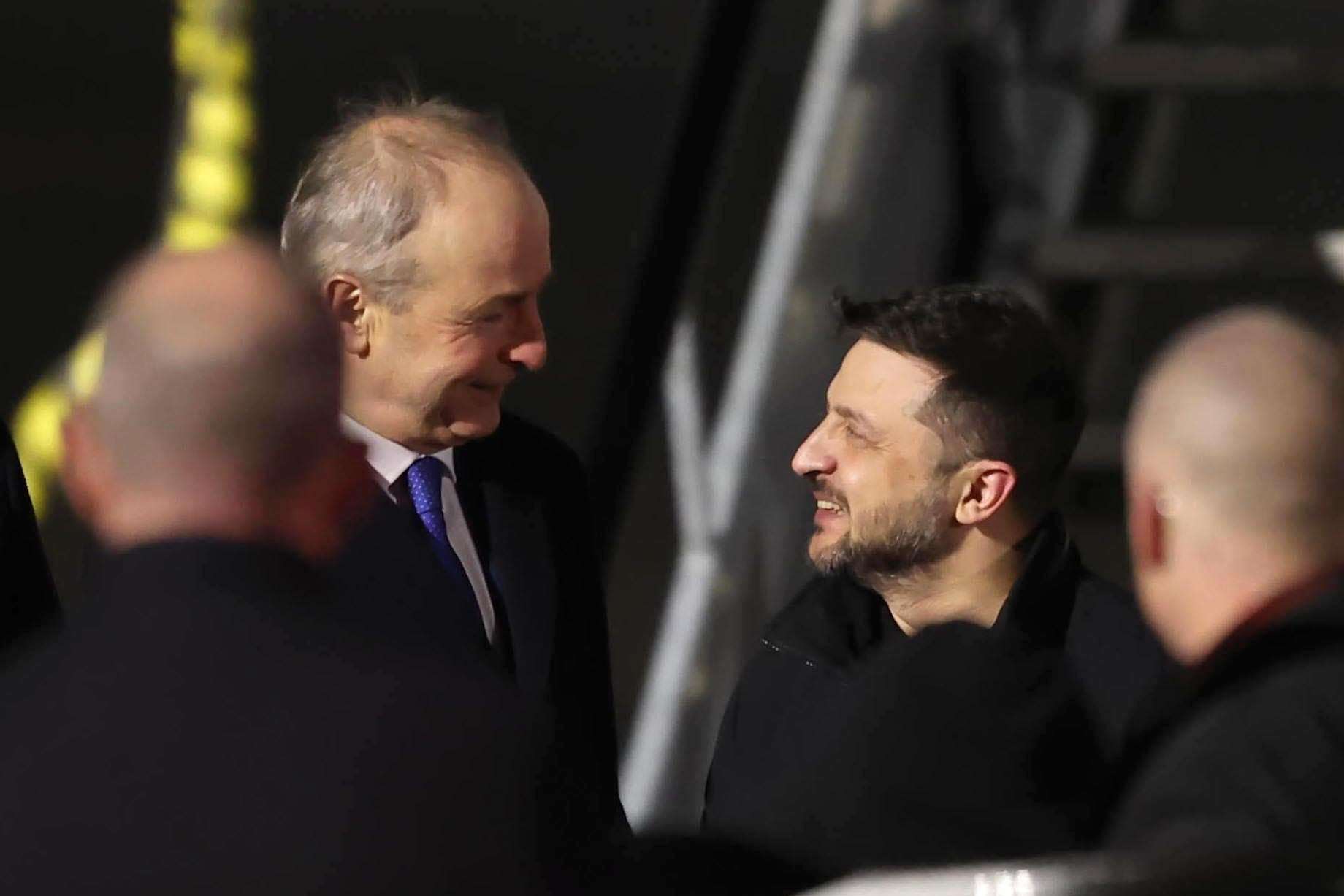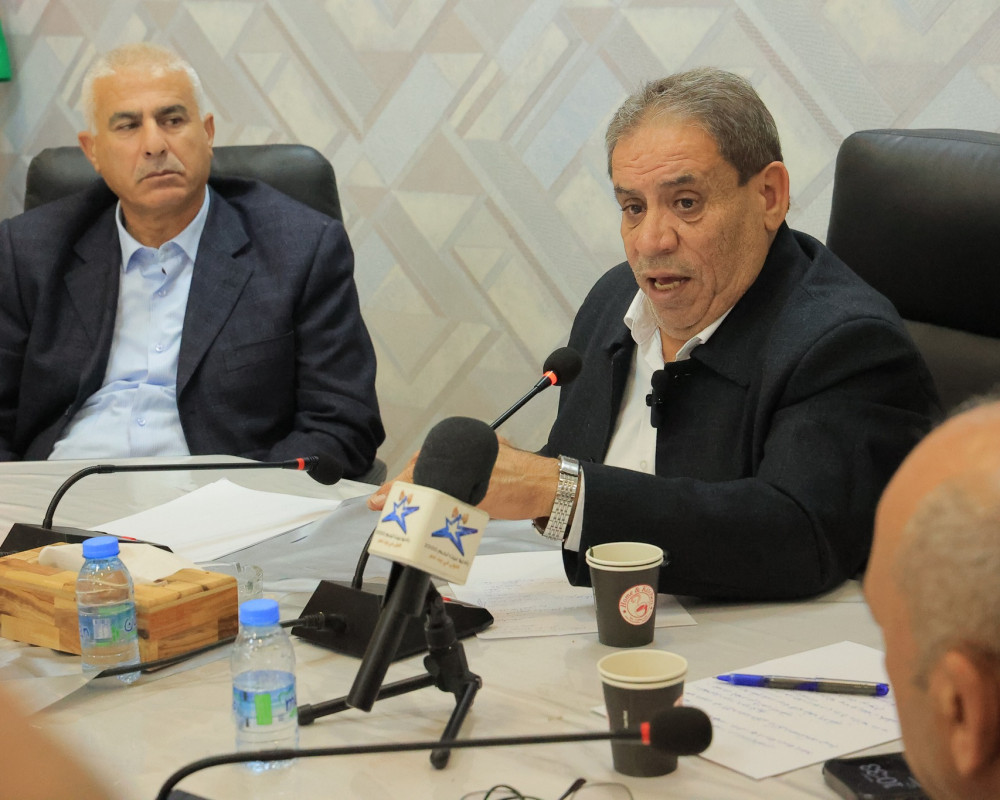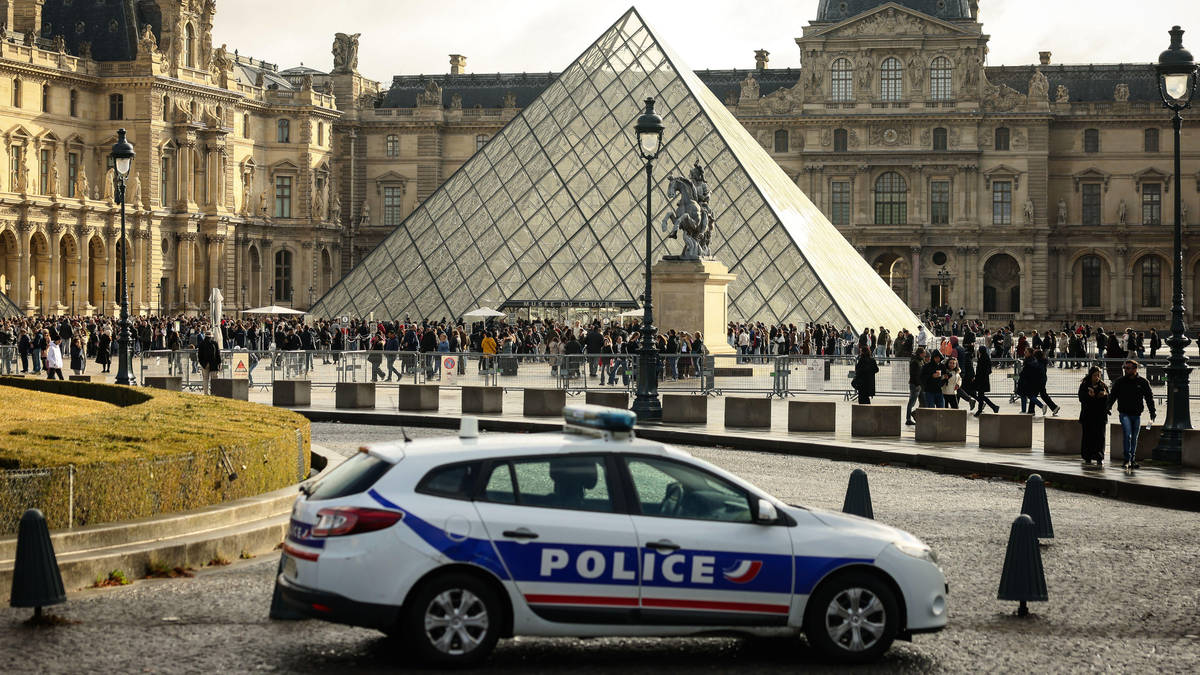Middle East
INTERVIEW – Let’s help children in Gaza become children again: UNRWA chief Lazzarini
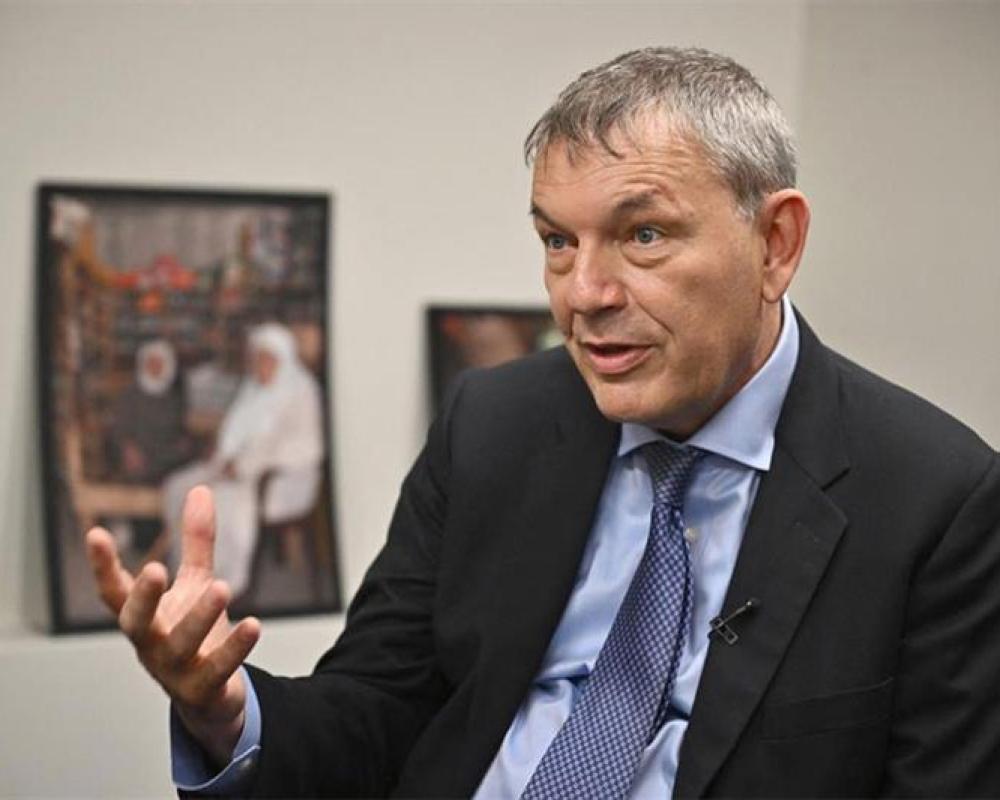
Cairo /
As hundreds of thousands of Palestinians return to the ruins of their homes, UNRWA Commissioner General Philippe Lazzarini urges in an Interview with Ahram Online the world to flood Gaza with food before winter exacerbates the catastrophe.
Lazzarini said UNRWA should only be dismantled on the day a permanent political settlement is achieved, ending the suffering of the Palestinians.
For more than two years, Israel’s war on Gaza has torn apart every aspect of life, turning the Palestinian strip into a graveyard. Cities have been flattened, hospitals bombed, entire families wiped out, and starvation weaponized.
UN investigators have concluded that Israel is committing genocide, while UN agencies confirmed that Gaza is enduring a man-made famine.
Moreover, humanitarian personnel have paid a disproportionate price; UN document 543 relief workers have been killed by Israeli strikes on clinics, shelters, and convoys since October 2023.
This tally included 370 staffers from the United Nations Relief and Works Agency for Palestine Refugees (UNRWA). The agency itself has faced relentless Israeli defamation campaigns aimed at silencing its voice and cutting its funding.
Lazzarini, a Swiss humanitarian veteran, has led UNRWA since 2020. This put him at the helm of the main UN agency providing essential services – from education and healthcare to emergency aid – to millions of Palestinian refugees.
With decades of experience in conflict zones with both the ICRC and the UN, including previous assignments in the occupied Palestinian territory, Iraq and Lebanon, Lazzarini has become a central figure in navigating the massive, often life-threatening challenges of delivering aid in Gaza amid war, political controversy and intense pressure on UNRWA’s operations and funding.
Today, as a fragile ceasefire holds, even amid violations, UNRWA continues its lifesaving work inside Gaza, with its chief urging a massive and immediate scaling up of aid to a population pushed to the edge of survival.

Ahram Online: Let’s start with the immediate catastrophe. Following the return of hundreds of thousands of Palestinians during the ceasefire, what are the most pressing needs?
Phillipe Lazzarini: The last couple of days were full of emotion because hostages were released, prisoners and detainees were released and finally reunited with their families. Hundreds of thousands of people have already returned from the south of the Gaza Strip to Gaza City. There’s a mix of emotions, relief at the silence of bombardments and the chance to breathe again, but also shock at the level of devastation and destruction.
Clearly, the needs in Gaza are extremely high, and we are also on the eve of winter, so we will have to scale up critical life-saving assistance such as food, tents, blankets, winter clothes, access to clean water, and medical supplies. We have always operated in Gaza over the last two years. Of course, not at full scale, but I must say our services and activities have never stopped. As you mentioned, there is now a ceasefire.
UNRWA has been very active in public health; we provided more than 10 million primary health consultations in Gaza over the last two years. We continue to ensure access to clean water and to provide psychosocial support to deeply traumatised children.
I hope that in the coming days we will be allowed to bring in critical supplies. We have a lot of supplies outside Gaza, both in Egypt and in Jordan, which could cover the critical needs of the entire population for the next two months.
AO: How can you manage the aid operation while Israel prevents your presence in Gaza?
PL: We must separate the two things. Is UNRWA active in Gaza? Yes. Are we providing services in Gaza? Yes. We have 12,000 staff in Gaza. It is true that there are two Knesset bills that prevent international staff from entering Gaza. I personally cannot go to Gaza for the time being, and we withdrew the international staff of around 20–25 people. It’s also true that, until today, we have faced restrictions on bringing supplies into Gaza.
I am pleading and urging that this constraint be lifted so that the agency can bring its supplies into Gaza. Despite them, UNRWA remains the main service provider in Gaza, covering more than 40 percent of primary health-care needs in the Gaza Strip, and being the main provider of clean water access. All these activities are going on despite the constraints imposed on the agency.
AO: Has anything changed since the ceasefire deal?
PL: The deal is new; it has just started to be implemented. On the first day, some trucks were able to enter Gaza, but in the past two days, there hasn’t been any direct supply from the agency. We are working on it, and I’m hopeful that in the near future we will be able to. I have been very vocal on this and have renewed my appeal to lift restrictions so the agency’s convoys can enter Gaza.
But the needs remain the same. It’s a race against the clock to respond to all these critical needs. We must never forget that famine has been declared, and a quarter of Gaza’s population is already in famine.
The rest of the population faces despair and hunger. In the last two days, we have seen desperate scenes of trucks being looted because of the desperation of the people, which is also an indicator that there is not enough food inside the Gaza Strip.
That’s why we need to flood Gaza with food to ensure access for everyone in need. Since the ceasefire, hundreds of thousands of Palestinians have returned north, and we have also redeployed several of our mobile clinics back to the north to reopen health centres there, to meet the critical needs of people now back in Gaza City, for example.
AO: So, despite this man-made famine and such dire conditions, are we still, realistically, only at a phase of hope, rather than concrete action?
PL: We have a ceasefire, and we hope it holds. Part of the agreement includes a significant scale-up of humanitarian assistance and the reopening of private business activity in Gaza. If this is respected, I hope that in the coming weeks we will begin to see some tangible improvements and will be able again to reverse the deepening hunger.
AO: Do you think the world truly grasps the scale of Gaza’s devastation, in the short or long term?
PL: It’s very difficult to comprehend what happened. You have to see it to believe it. The level of devastation and destruction is such that it’s difficult for the rest of the world to imagine the scale of the disaster we are dealing with.
Gaza has almost become a wasteland. It’s very hard to live under such conditions, which is why we need a genuine commitment to ensure any recovery process can succeed.
Gaza has been destroyed; 90 percent destroyed. You don’t have a place to live. The economy has been destroyed; the farmlands have been destroyed. It is now a land that is almost not livable for a human unless we invest and commit to rebuilding. I understand that a conference on Gaza’s reconstruction is expected soon in Egypt. That will be the moment to measure the determination of the region and the wider international community to truly rebuild the Gaza Strip.

AO: Children in Gaza have been out of school for more than two years, and you have warned of a “lost generation.” What kind of emergency education initiatives can be implemented amid such destruction?
PL: You are right. Bringing back hundreds of thousands of children, currently living amid rubble and deeply traumatized, must be a top priority for the agency.
Before October 2023, about 300,000 girls and boys of primary and secondary school age were in UNRWA schools. Today, nearly 700,000 children are out of school. There’s an urgent need to bring them back into a learning environment.
UNRWA already has a plan. We’ll start by reintroducing basic psychosocial support to help children readjust. The learning environment won’t necessarily be a school building because most schools have been damaged or completely destroyed. So, we will combine distance learning, something we developed during COVID and previous wars, with safe spaces across Gaza where teachers can hold in-person teaching with children.
We need to bring children back into education now. We need to rebuild schools, and by rebuilding them, we also need to rebuild hope and restore the dreams of the children. Let’s help the children of Gaza become children again.
AO: The UN General Assembly is set to discuss the UNRWA mandate renewal in December. Do you think this renewal is likely, given the lack of funding that you have mentioned, and Israel’s open pressure to dismantle the agency?
PL: When it comes to the mandate renewal, I am optimistic. Look at the adoption of the New York Declaration by the General Assembly already in September, and the New York Declaration featured UNRWA’s role as an enabler to a successful move towards a two-state solution. More than 140 member states endorsed that declaration, and through this, the role of the agency. I therefore expect the same Member States to renew the mandate of the agency. So, I think there is no real threat regarding the mandate renewal.
But I keep reminding Member States that renewing the mandate is one thing, and providing the resources to fulfil it is another. Political support, which is very important for the agency, must be matched by financial support, and that’s where our biggest challenge lies.
UNRWA’s financial situation is very, very dire. Despite our cost control during this year, we are still confronted with a large deficit, which, if not bridged, will further impact our ability to deliver services. That’s why I’m urging countries to continue to provide resources, and particularly calling on the Arab region to do more.
We receive strong political support and solidarity from Arab states with the Palestinian refugees, but it is not yet translated into financial backing. When I spoke at the Arab League in September, I reminded them that, as of today, total Arab contributions represent only 3 percent of our income.
AO: You have made this appeal to the Arab world. Have you noticed any change in tone or response, beyond expressions of solidarity?
PL: There are a lot of discussions going on. We are still early in October; there are months to go. I truly believe we can do much better, and the year is not over yet.
I keep being reassured that the agency will not be let down. I also believe that everyone expects the agency to play a central role in the resumption of services in Gaza, such as public health and education, as we discussed before, and for all these reasons, I believe that the region will express not only solidarity but also generosity. I hope that by December, we’ll be able to talk about a different percentage.
AO: But do you really believe that Israel has abandoned its pursuit of dismantling UNRWA?
PL: No, I don’t believe that. Those who want to see the agency dismantled have not renounced their objective. But it is not only Israel which will decide the future of Gaza and the region; the region needs to be part of it. The question is how we reconcile this tension. The agency continues to be under assault and attack; there’s absolutely no doubt.
But I keep reminding people that it would be a terrible mistake to let an asset like UNRWA fail at a time we are talking about a roadmap, a path to recovery, a path to sustaining peace and security, and also a path to self-determination for the Palestinian people.
UNRWA has a critical role to play. We are providing public-like services to Palestinian refugees. If you get rid of this expertise and work, who else will come in? The two main providers of public services are the Palestinian Authority and UNRWA. If none of them has a role to play, who will fill the vacuum?
We saw in 2003 in Iraq when public services were dismantled, which led to the chaotic years that followed. So, there is a lesson learned here: it is important to build on the existing workforce, resources and expertise. I hope that despite the remaining objective of some to dismantle the agency, the dismantlement, if it were to happen, would be undertaken through a political process, building up the capacity of future empowered Palestinian institutions.
The day UNRWA should be dismantled is the day there is a lasting political solution. Let’s invest in this and make the mandate finally irrelevant. Let’s put an end to a temporary, lasting agency through a genuine commitment to promote peace in the region.

AO: You have often spoken about the impunity that enabled those Israeli atrocities in Gaza. Do you see any real steps being taken toward accountability?
PL: I have called regularly for accountability because so many atrocities have been committed so far. Now, in a period of ceasefire and rebuilding, we need to go through a period of healing, reconciliation and justice.
I don’t believe you can promote a lasting peace between two peoples if the question of accountability and justice is not addressed. People need recognition of the horrible suffering and atrocities that have been committed.
AO: How did aid workers, and you personally, cope with such devastation and atrocities for more than two years?
PL: As far as I’m concerned, I have witnessed and heard all these atrocities for the last two years. The agency has been under tremendous attack, and I have been personally attacked as well. The way to handle a situation like that is to make sure you do not take the experience in the field personally. You do it because you are holding a function, and that helps much.
The real question is to ask the people on the ground: how do they cope? I don’t know if they cope. People are in very deep shock and trauma, and they have to recognize the shock and what they have endured to begin the healing process.
Source link
#INTERVIEW #Lets #children #Gaza #children #UNRWA #chief #Lazzarini
Middle East
CFI Unveils Climate and Environment Media Works From Jordan, Palestine, Lebanon and Iraq
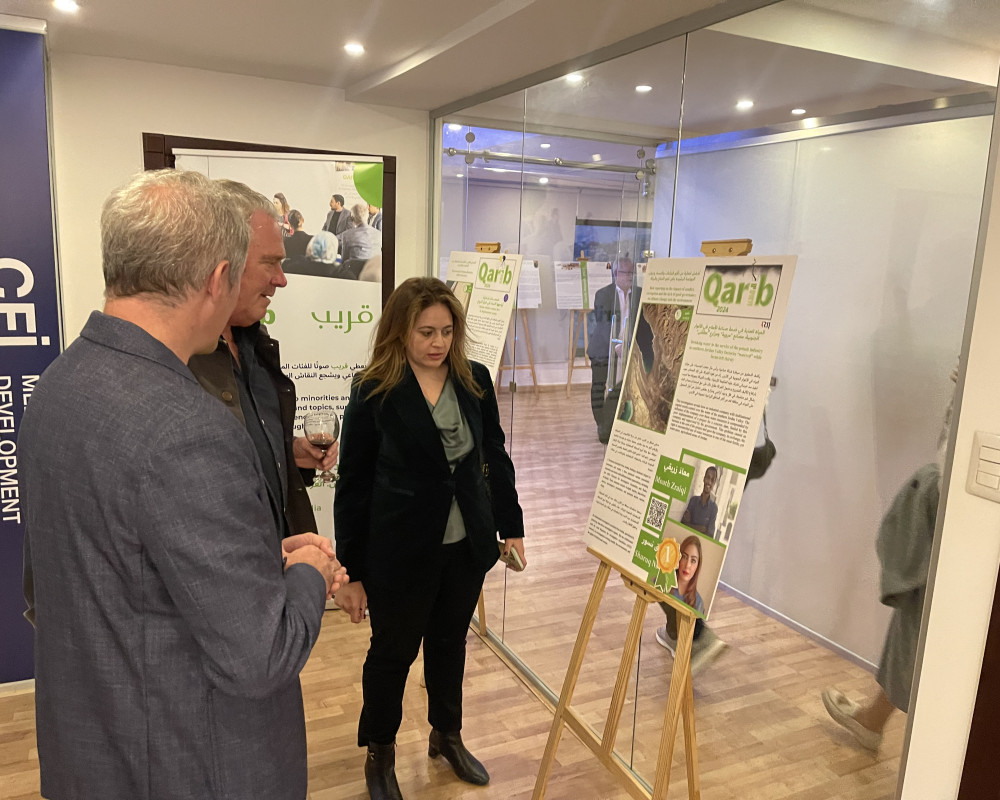
Amman / PNN /
The French media development agency CFI organised an art exhibition showcasing reports and stories produced under its environment and climate project, funded by the French Development Agency (AFD). The initiative trained journalists from four Arab countries to produce climate-related reports aimed at raising public awareness in the region about the importance of environmental protection.
The exhibition was held at CFI’s office in Amman, attended by the agency’s global director Emanuela Tolan, AFD’s regional director Yves Gescoro, QARIB programme director Henrik Erhnäs, QARIB editor-in-chief Nada Abdel Salam, representatives of various Arab media outlets, several media donors and members of the QARIB team in Jordan.
Henrik Ahrens, director of the QARIB media-development project, told PNN that CFI is hosting the exhibition to highlight climate and environmental productions created within the programme across four Arab countries. He said the goal is to inform audiences in Jordan, Palestine, Lebanon and Iraq about the importance of protecting the climate and countering negative environmental impacts.
Ahrens said the name “QARIB” was chosen because the programme seeks to bring journalists from the four countries closer together and produce stories that resonate “closely with the mind and the heart.” He added that the project is built on the idea of supporting independent media and enabling journalists from smaller outlets to participate in global climate summits, while also amplifying the voices of marginalised communities through stronger media coverage.
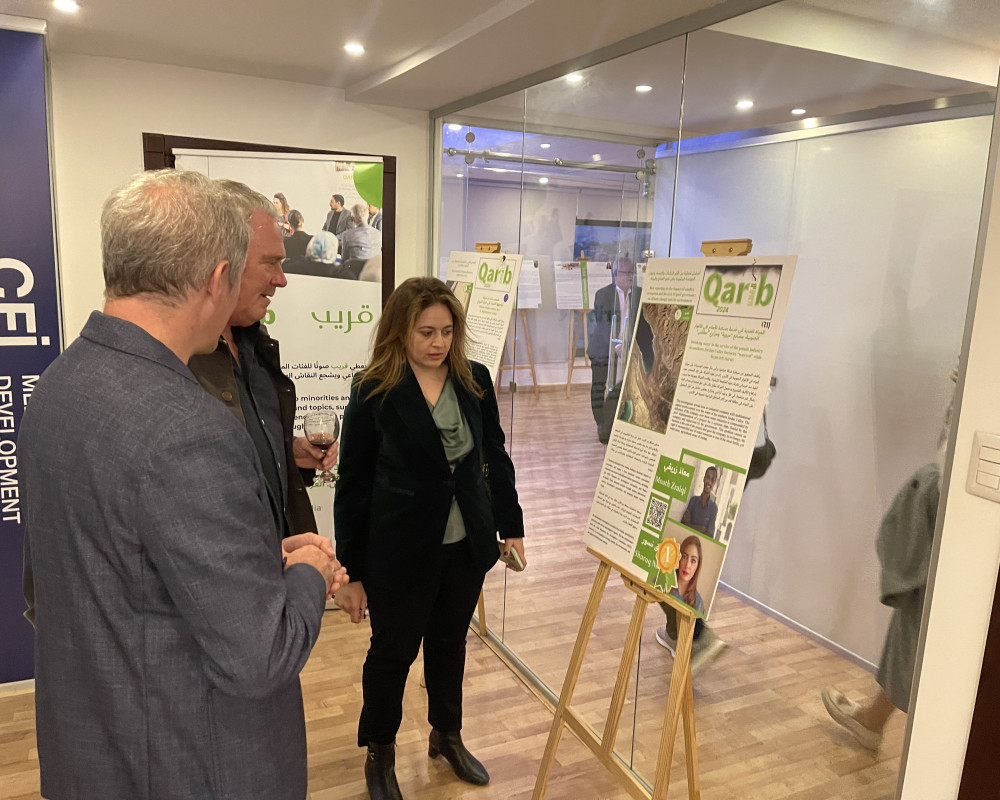
He noted that QARIB has allowed participating journalists to cover global discussions and negotiations on protecting the planet and preventing harmful climate change by raising public awareness. The exhibition, he added, is an opportunity to highlight what the journalists have achieved—written, visual and broadcast stories documenting climate-related issues.
Ahrens said CFI and QARIB trained groups of journalists and independent media professionals in the four countries on environmental and climate reporting. Journalists were supported to attend recent UN climate summits, where they produced in-depth coverage of global negotiations. Many have since developed the ability to create specialised environmental content that raises awareness in their communities.
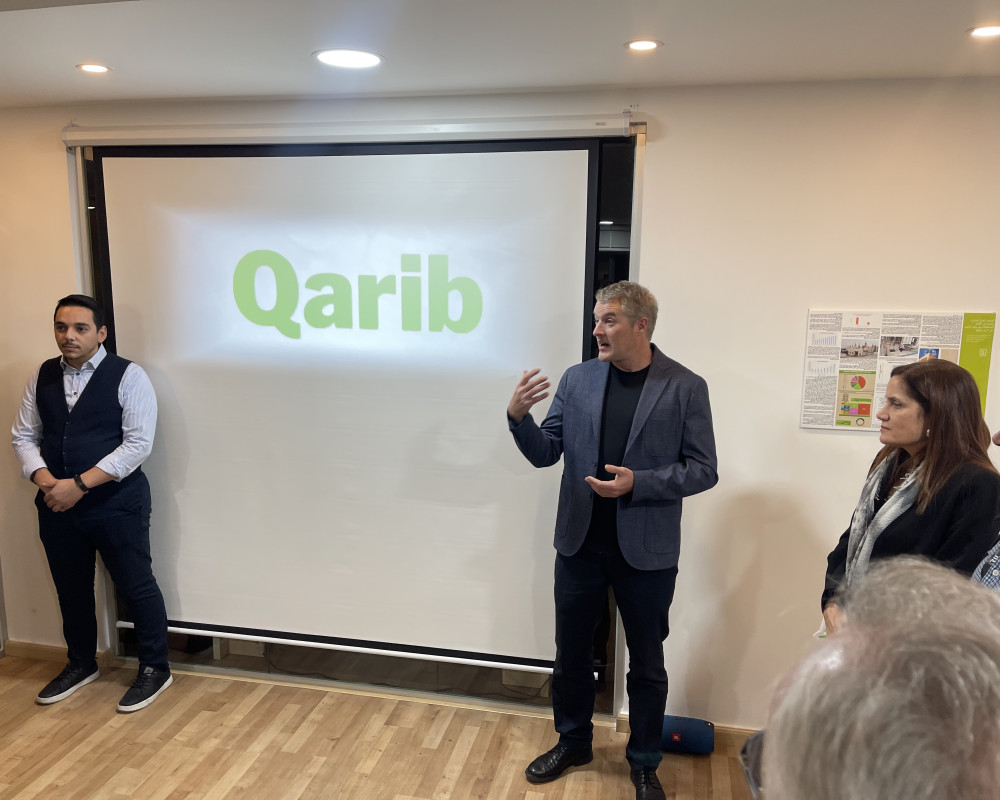
The multi-year project provided training for independent media outlets in the four Arab countries, including PNN, aiming to build journalists’ skills and open opportunities for them to join international climate conferences.
Environmental journalist and trainer Suzanne Baaklini said QARIB trained journalists on key issues discussed at climate summits, including climate-finance negotiations, the responsibilities of major industrial countries, and the measures needed to mitigate negative environmental impacts. She said participants have since produced strong climate and environment reporting both during summits and in their home countries.

Journalists benefiting from the programme expressed their gratitude during the exhibition, stressing that the experience opened new horizons they hope to build upon.
Monjed Jadou, editor-in-chief of Palestine News Network (PNN) and founder of the “Arab Journalists for Climate” platform, said the network was proud to be part of the project. He thanked CFI and AFD for allowing PNN to cover the climate summits for several years, helping deepen regional climate reporting and raise awareness among Palestinian and Arab audiences. He noted that international reports indicate the Mediterranean Basin is among the regions most vulnerable to climate impacts and could become increasingly uninhabitable in the future.
Jadou highlighted the Arab Journalists for Climate initiative, which participating journalists agreed to establish during the climate summit in Azerbaijan.
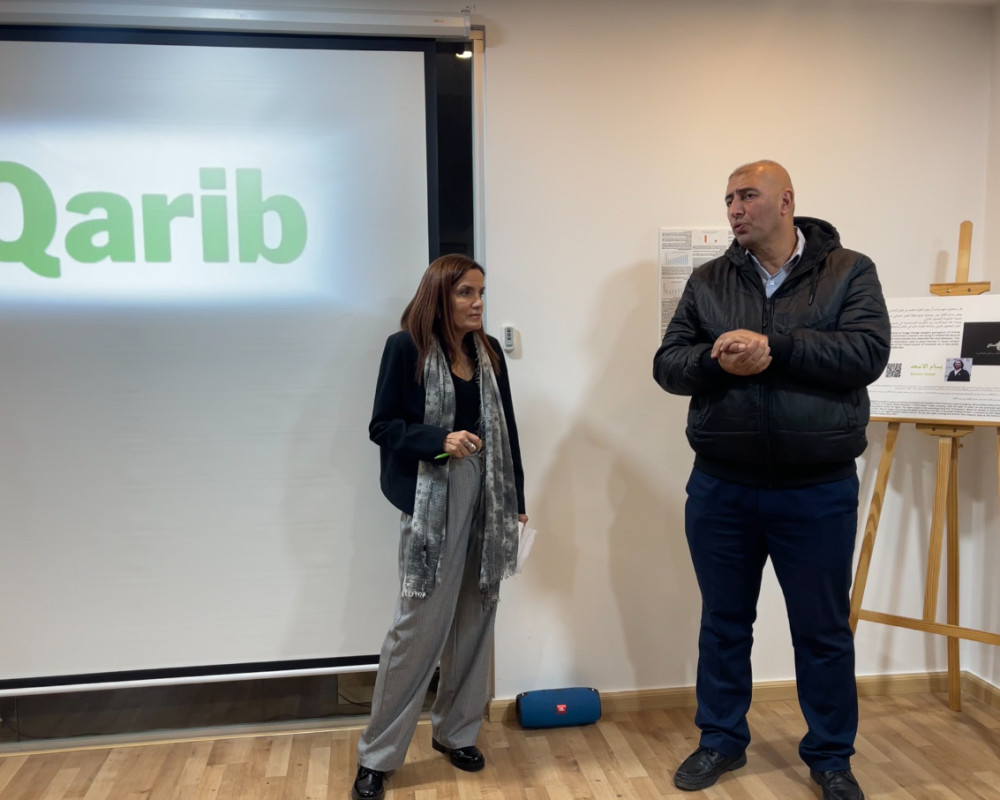
The volunteer-run platform covers Arab climate and environmental issues and currently seeks support to expand its work. He expressed hope that CFI would be one of its first supporters.
Lebanese journalist and climate-film producer Karam Mandar said QARIB allowed him to closely follow developments at the climate summits. After attending the past three conferences, he produced several short films on climate issues relevant to Lebanon and the wider Arab region. He expressed hope that independent media would continue to thrive in the four countries, as it plays a crucial role in amplifying public concerns, including environmental protection and climate challenges.
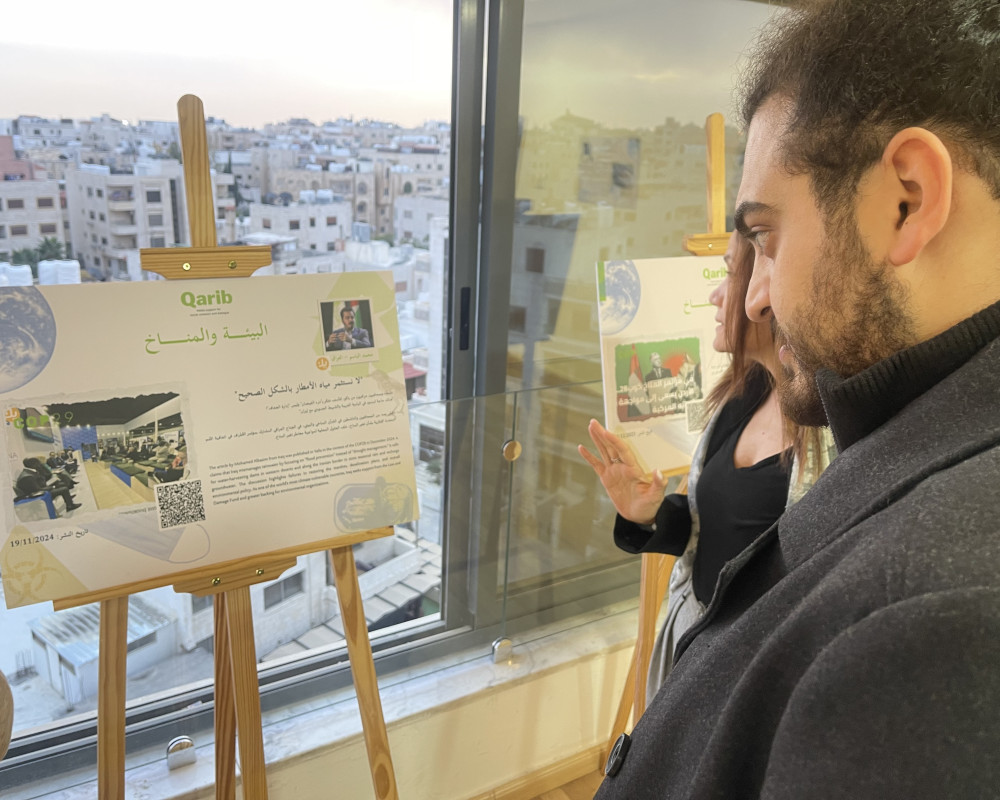
Mounia Dweik, director of the “Roya Palestine” channel, said the channel has recently developed its coverage of war-related environmental impacts, producing reports on the consequences of conflict on climate, land degradation, water pollution and soil contamination. She stressed the importance of addressing these issues.
Dweik added that the channel also prepared extensive climate-summit coverage, highlighting Palestinian issues throughout the events.
Jordanian journalist Abdulrahman Makawi, director of Jordan’s Aramram News, said the QARIB climate and environment project provided him with essential exposure to climate and water issues, which are of major concern to the Jordanian public. He said the outlet has since produced numerous specialised environmental reports. Makawi thanked CFI and the QARIB team for supporting young Jordanian journalists and expressed hope for more such opportunities.
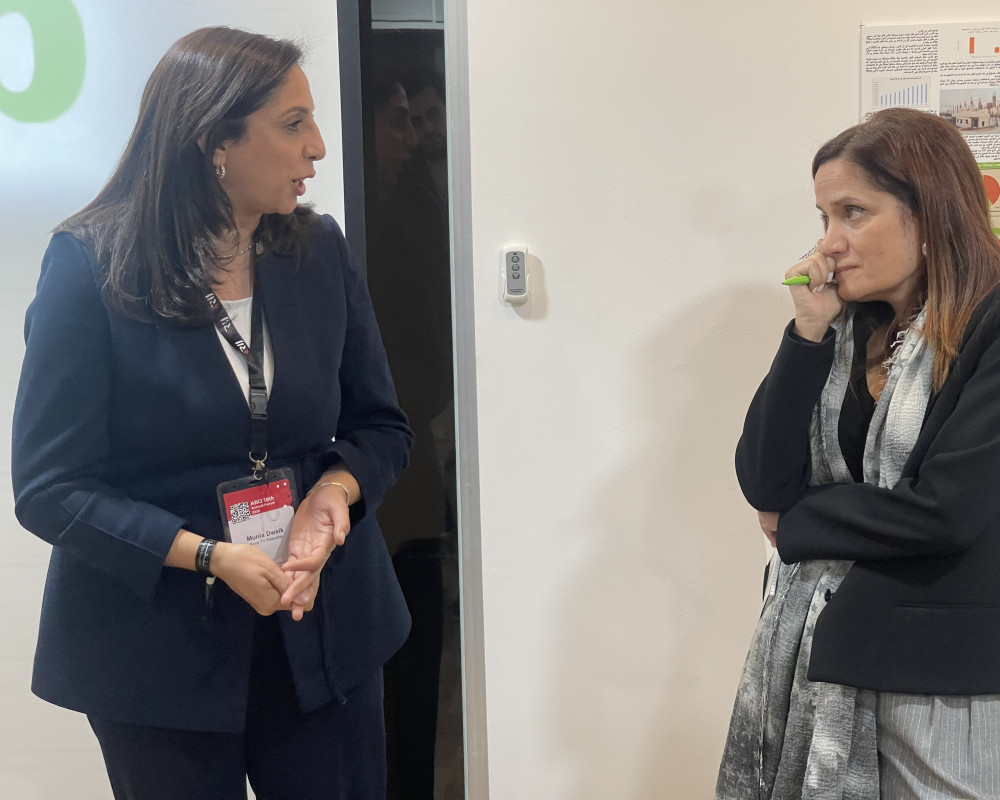
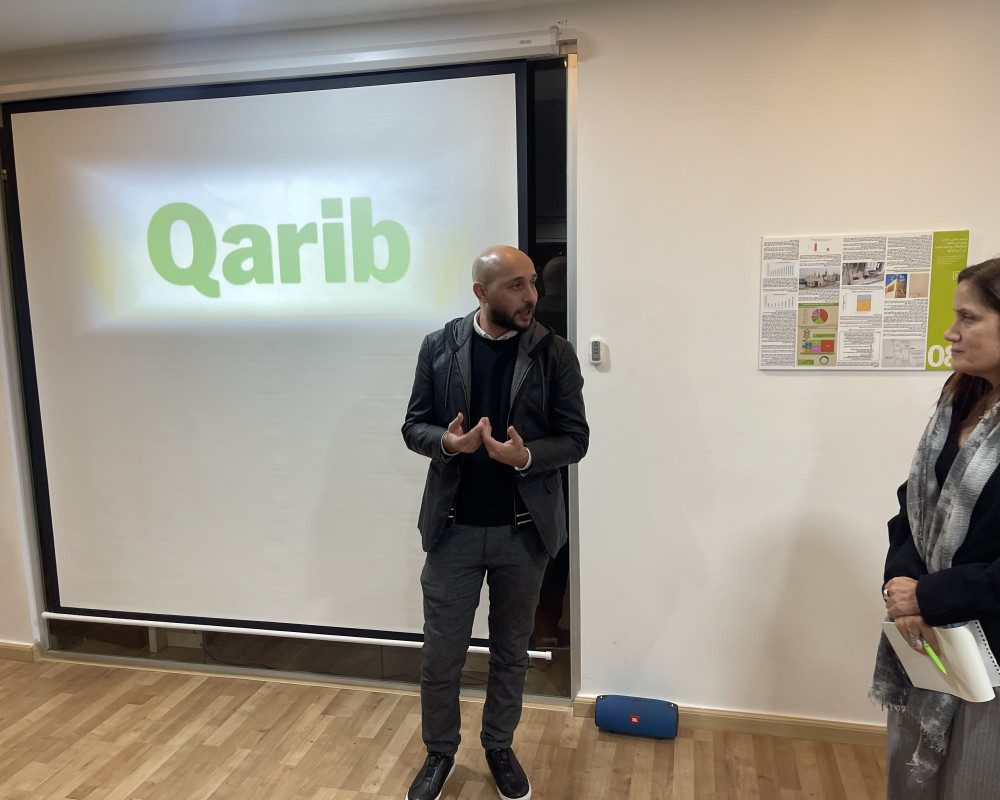
The photographs showcased at the CFI exhibition—drawn from the climate reports produced through the programme—illustrated success stories and underscored the need for more support to strengthen environmental protection efforts and raise climate awareness across Arab societies, which remain among the regions most affected by climate change.
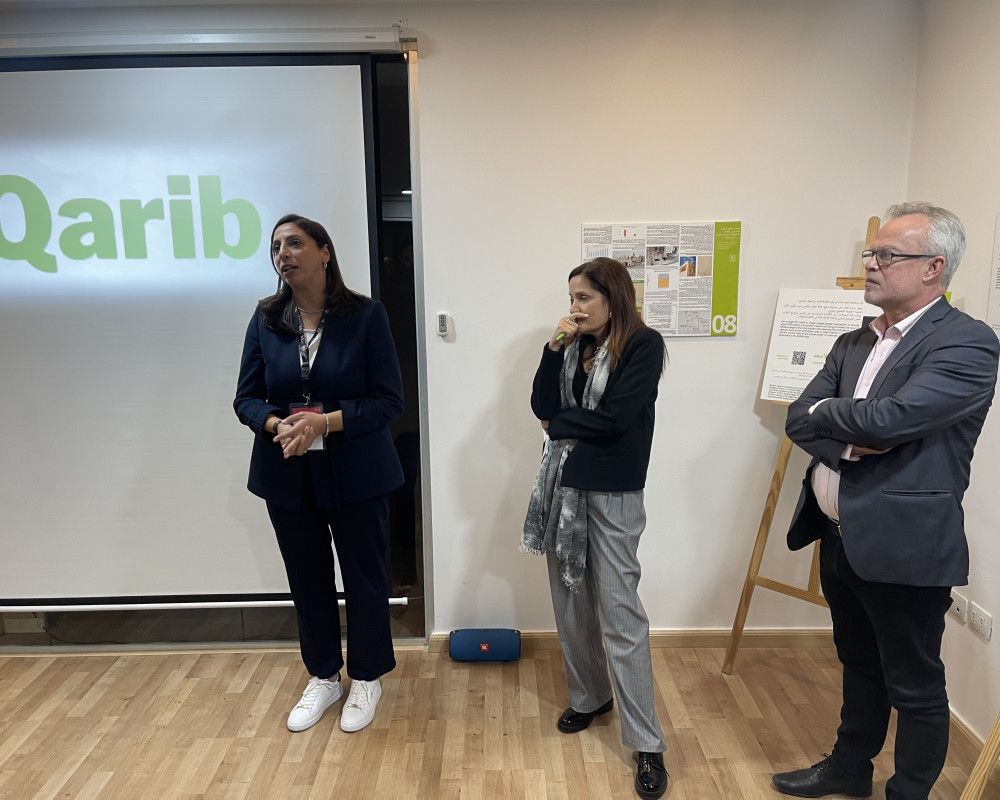

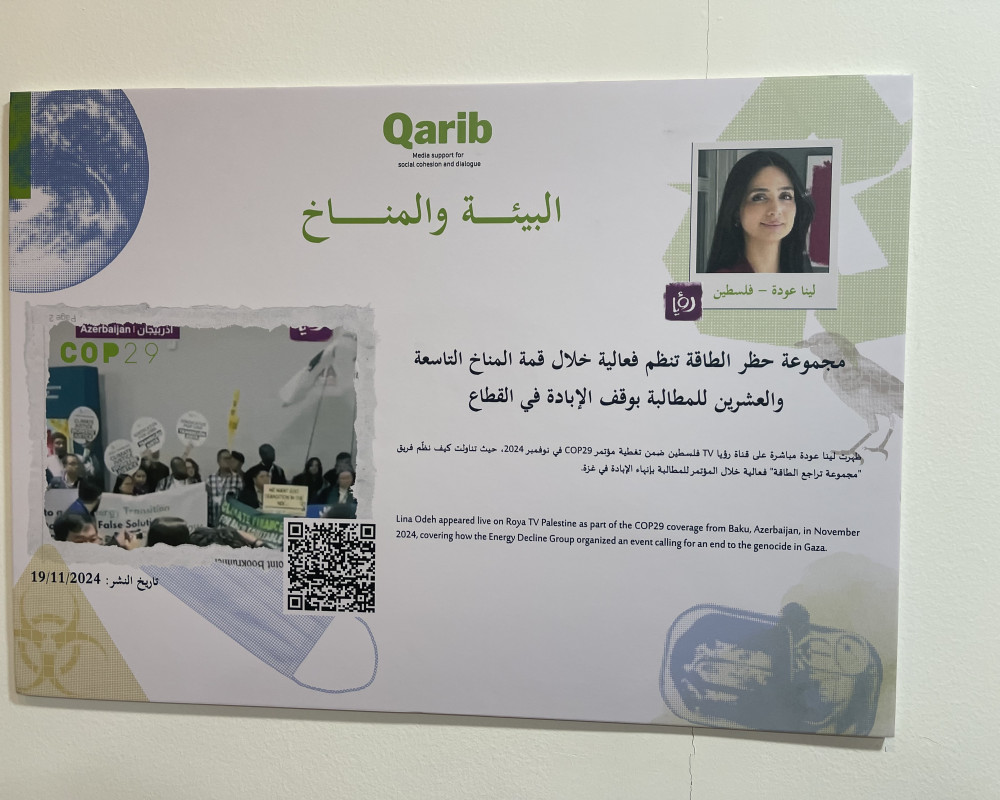
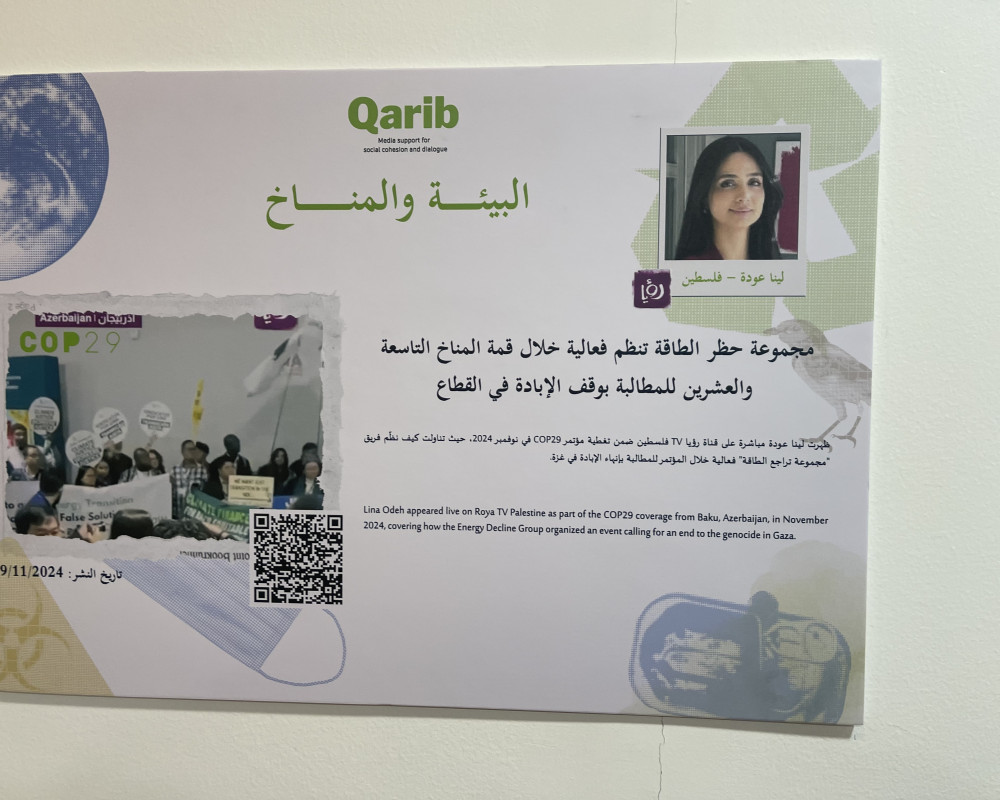
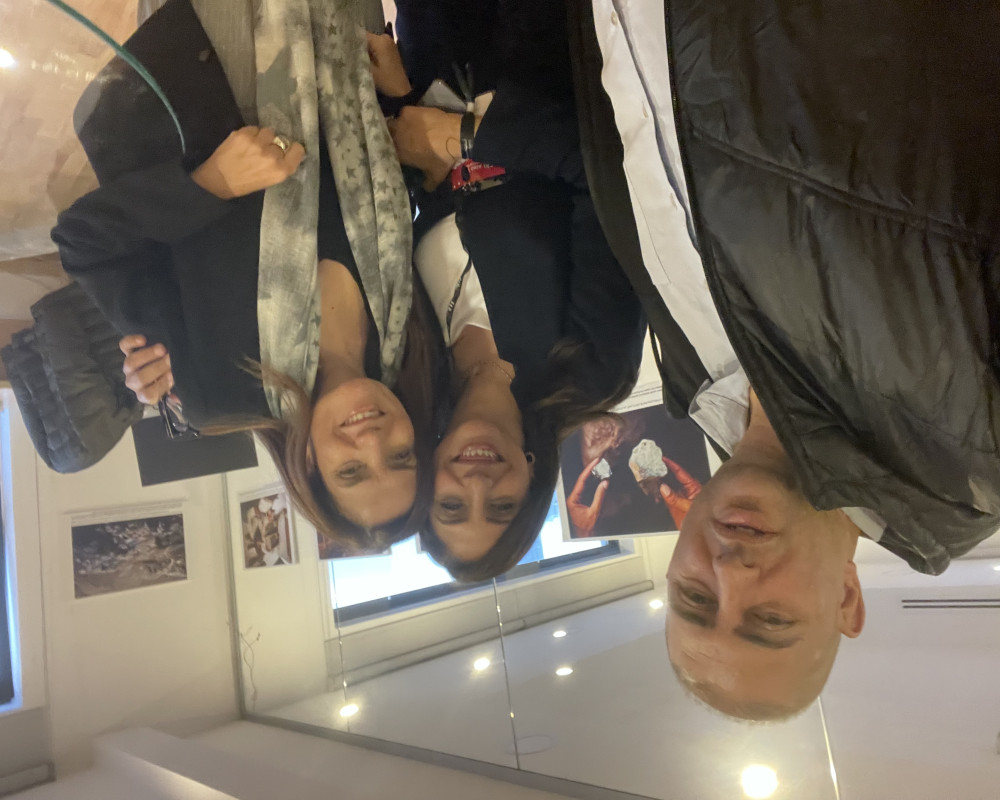
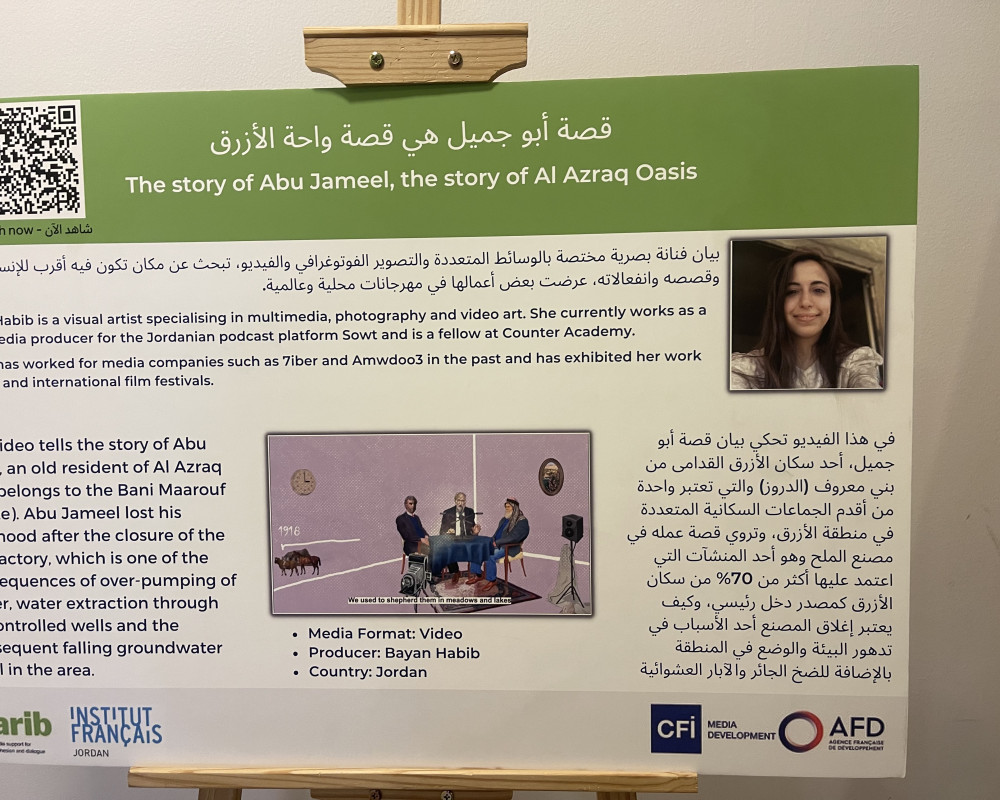
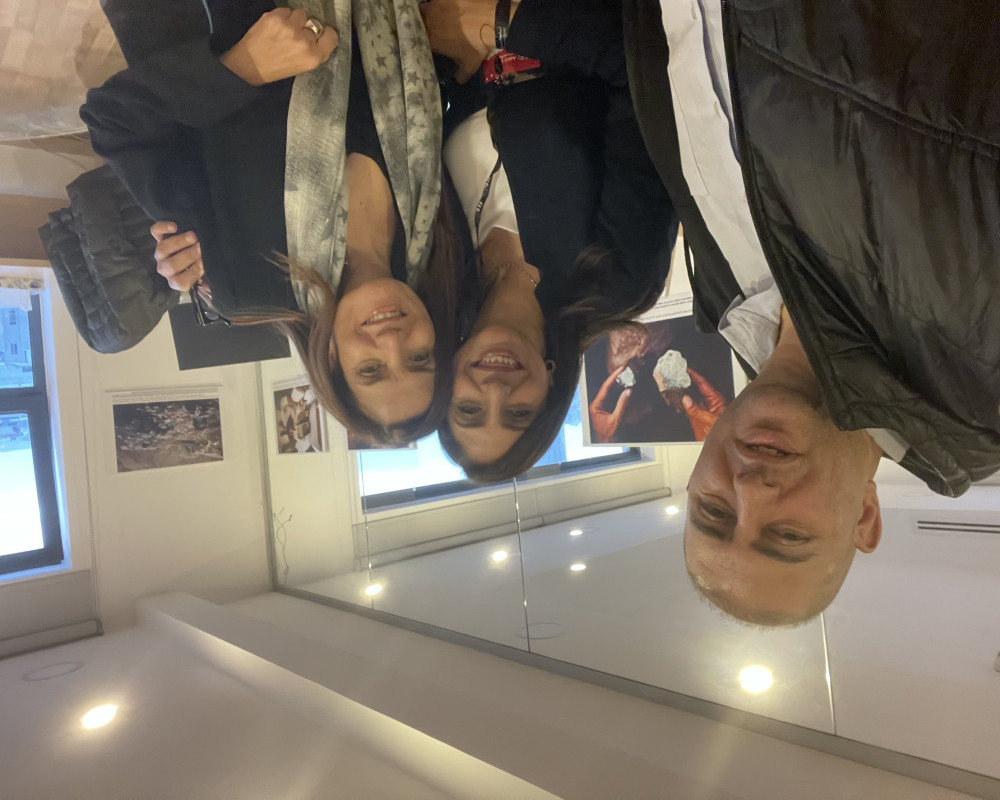



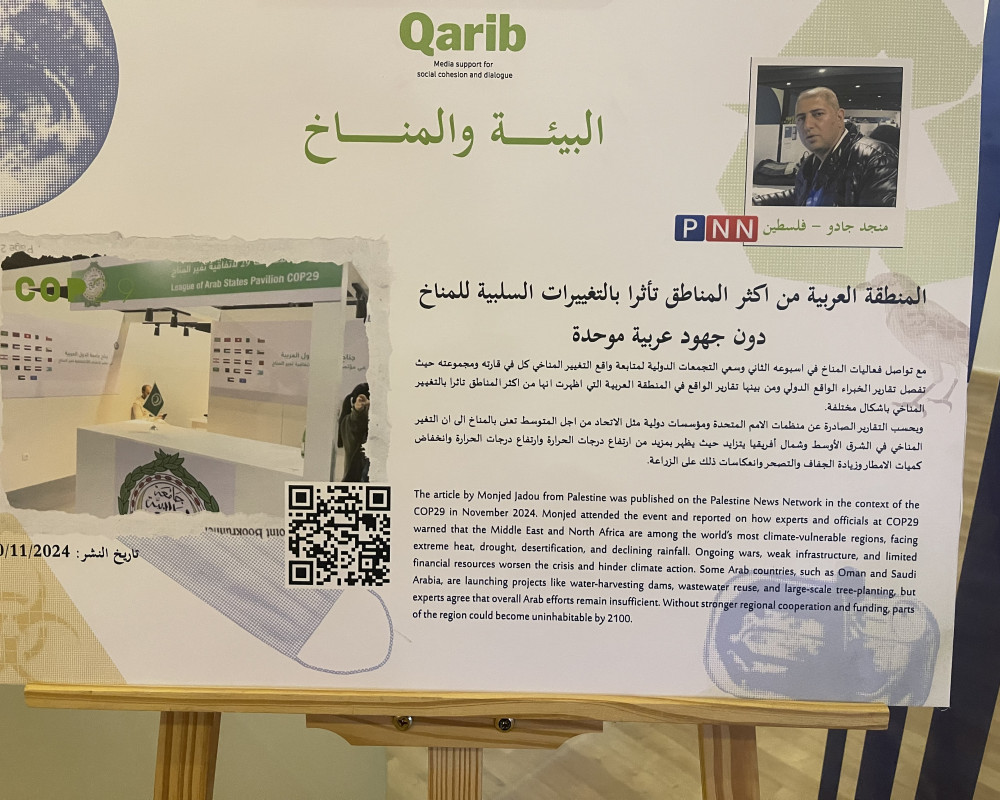
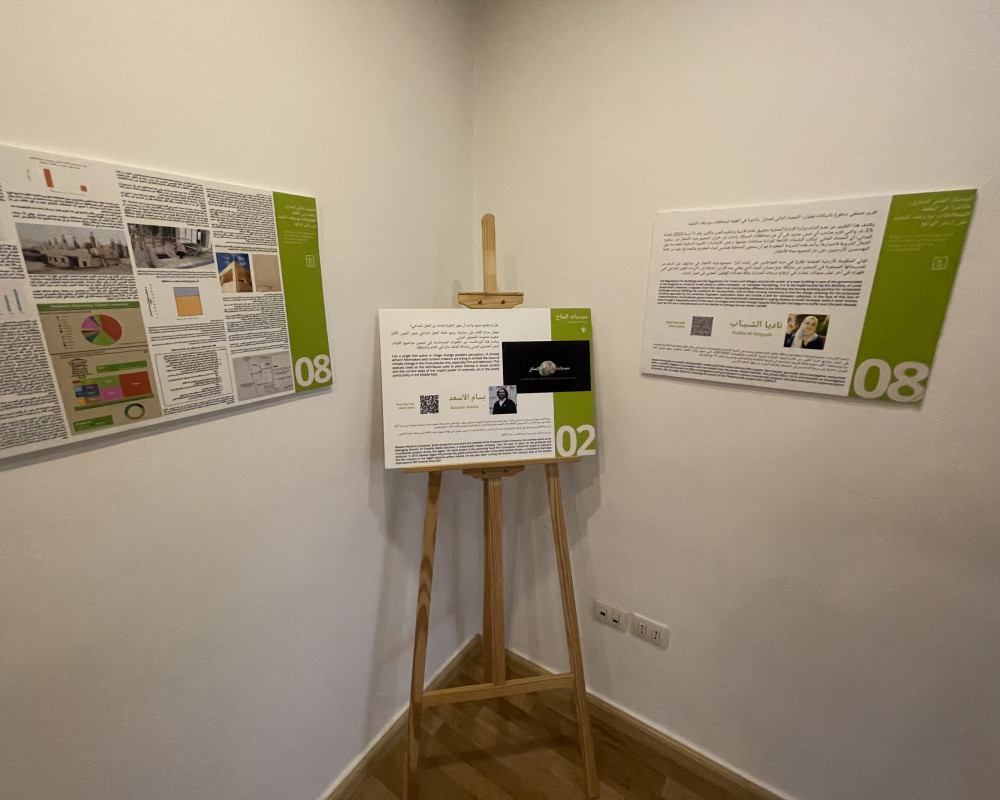
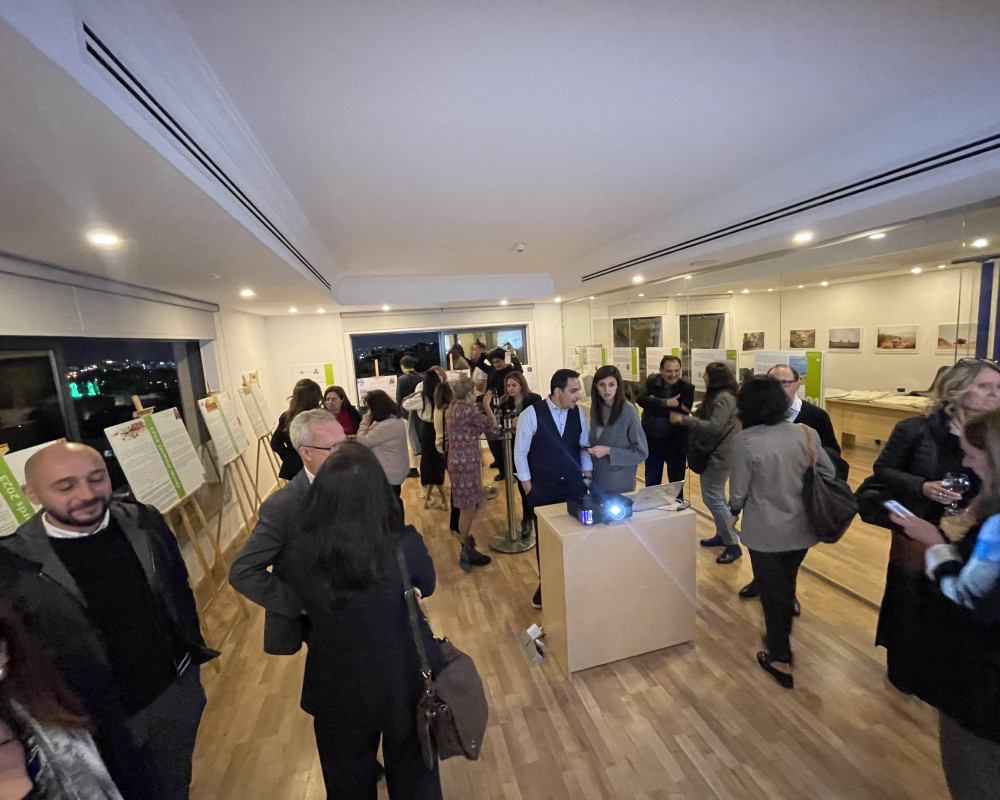

Source link
#CFI #Unveils #Climate #Environment #Media #Works #Jordan #Palestine #Lebanon #Iraq
Middle East
In Gaza Beauty expert’s lost dream
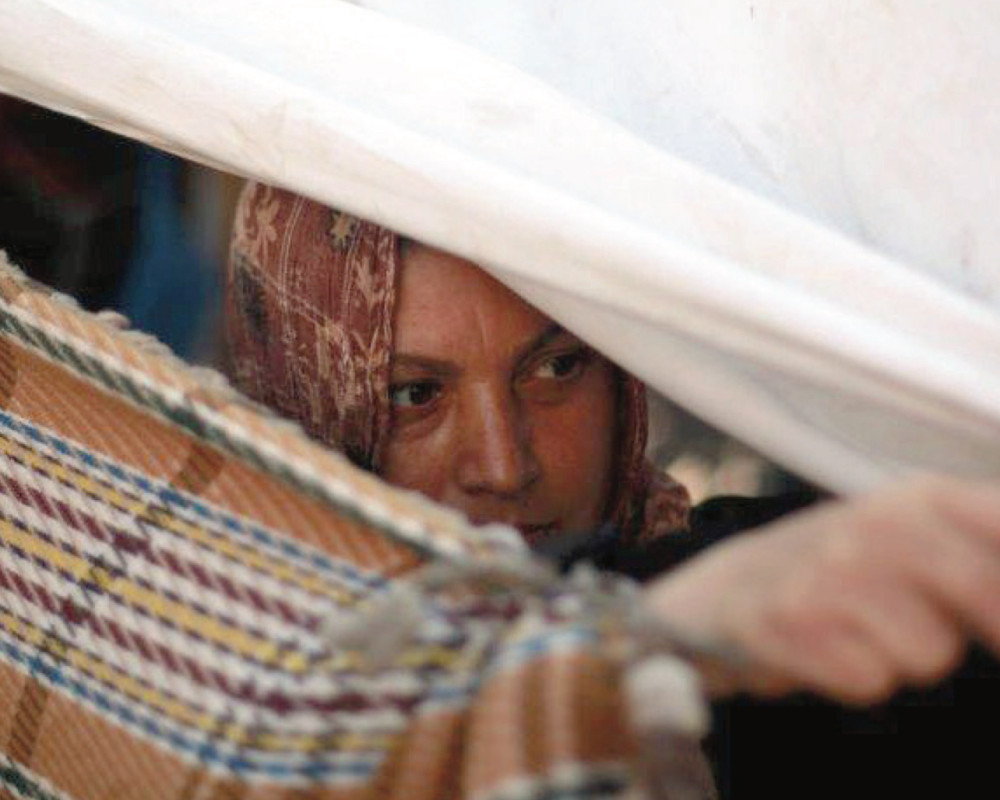
Gaza / PNN/ Iman Helas
For 13 years, Zeynep Hassouna patiently built a reputation as one of Gaza City’s most skilled beauty experts. In one single morning, Zeynep’s world and dreams shrank to a tent.
Today, Zeynep, 36, lives in a crowded tent in al-Yarmouk playground with her family and her brother’s. Piles of rubbish sit in front of the tent, occasionally emitting a foul stench and attracting flies.
“Before the war, I used to live as a queen — my business was excellent.” Zeynep managed to achieve remarkable success despite Israel’s 18-year blockade.
Women from the southern Strip traveled hours to her salon, Zain Salon, to have their hair or makeup fixed.
Her business was the source of income for her family and her brother’s as well.
In the first hours of war, Zeynep and her staff waited for clients, but none came. “In the [salon’s] street, hardly one man would pass every one hour or two,” Zeynep described the Sahaba Street, one of the most lively streets in Gaza City.
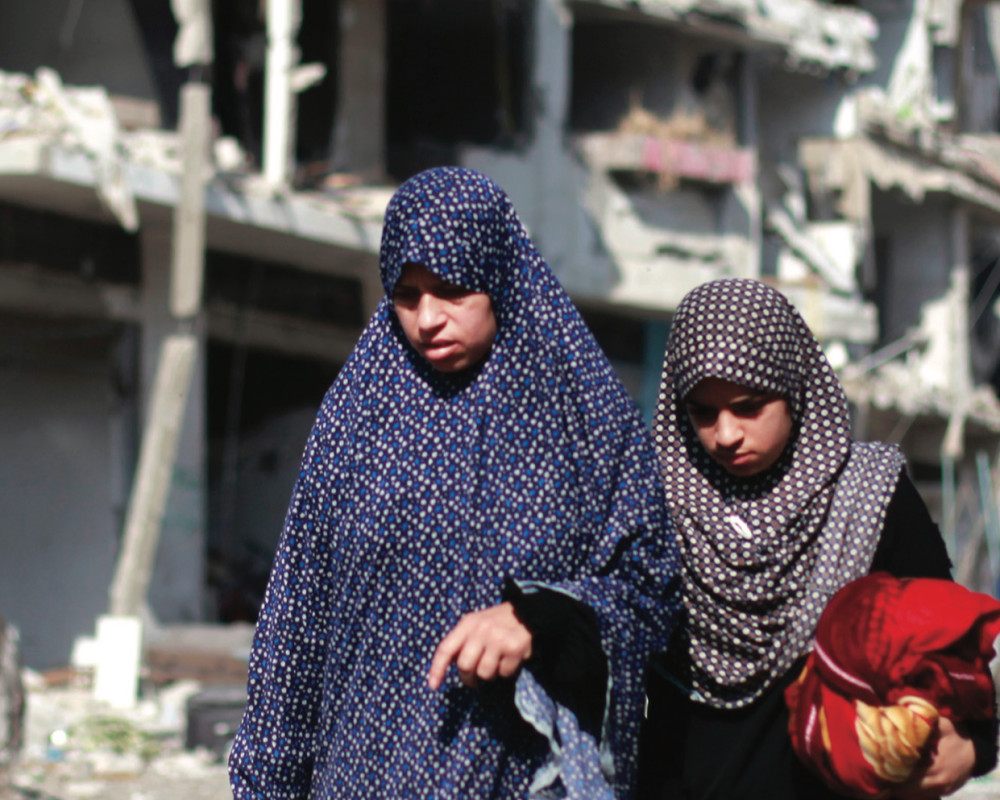
Feeling an upcoming calamity, Zeynep locked the salon by noon on October 7. She called the property owner to end the salon’s rental contract. “For a while,” she said, but that “while” extended for two years and is still ongoing.
The successful beauty expert became an evacuee. The Israeli army forced her to flee with her family to al-Shifa hospital, to al-Zarqaa neighborhood, to a tent in al-Yarmouk playground, to a tent in the southern Gaza Strip, and to a tent in al-Yarmouk playground once again.
Beauty for the Bereaved
Even with the salon closed, Zeynep tried to resume her work in any way. She called her regular clients, offering beauty services, but all said they could not. They were mourning one or more family members.
“Many of my clients were martyred. One woman was a regular client of mine with her five daughters — all of them were martyred. Some lost their husbands, and some lost their children.”
For the first 14 months of war, Zeynep did not gain one shekel.
According to Zeynep, one year and nearly two months into the war, people began to seek beauty experts. Her phone started ringing again, with women asking to do bridal makeup.
During that period, all of the brides Zeynep attended had experienced personal tragedy.
“I fixed makeup for a bride who lost both parents, a bride who lost her mother-in-law, and a bride who lost her brothers-in-law.”
“I also fixed up makeup for many war widows who were to marry their late husband’s brothers,” she added,
The makeup would be very simple, “just to get through the celebration.” During that period, celebrations were a way to cling to normalcy and tradition rather than a display of joy. Mourning families wanted to reclaim the means to smile and ensured to honor their martyred loved ones in the celebrations.
Zeynep’s work remained limited, not bringing in enough income to cover her family’s basic needs in the city with the [highest cost of living.
What if
“If I were able to work properly and bring any food, my nephew wouldn’t have eaten feces from the ground.”
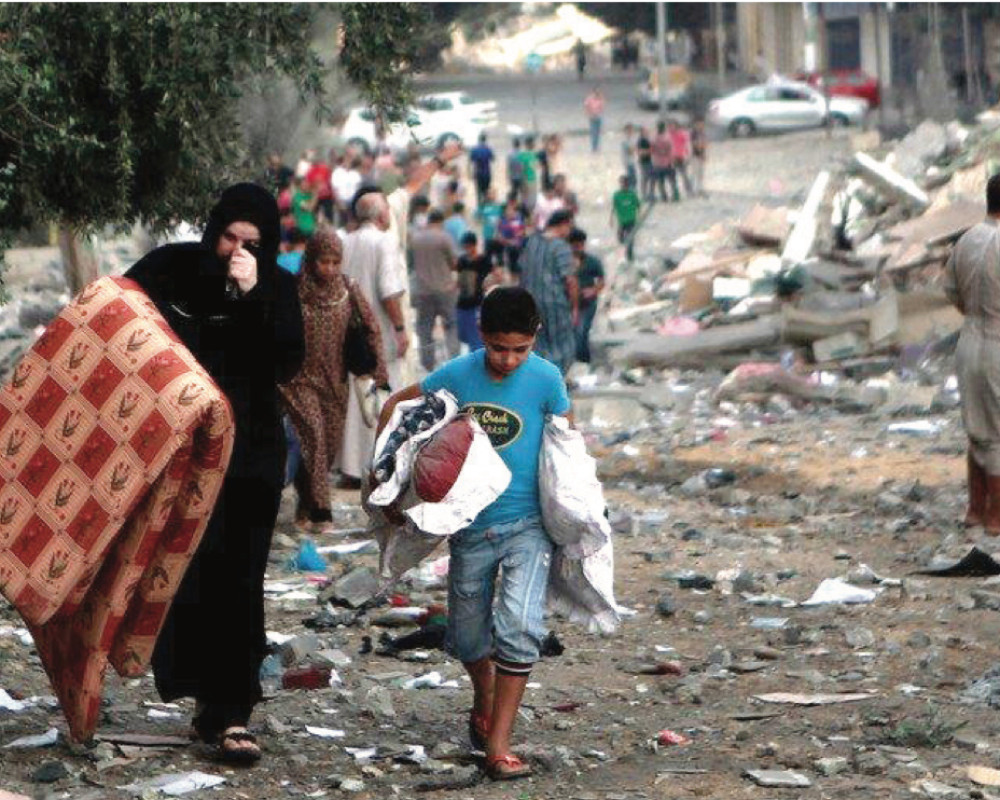
One morning during the harsh famine, Zeynep took her six-year-old nephew to a school to register for humanitarian aid during the famine. She left him at the door for just a moment.
When she returned, she found him sitting in the school bathroom, a tiny piece of bread in his small hand, pressing it into the dirt.
Zeynep tortures herself with the thought that her inability to work was the reason behind all of her family’s and her brother’s family problems.
Unlike many Gazans, Zeynep did not lose her home due to bombardment. Before that, the war deprived her of living happily in it, forcing her to be displaced repeatedly.
Eventually, her family was kicked out of the home, and did not find any place other than a simple tent sheltering them. It had taken Zeynep and her brother nine years to finally find an apartment spacious enough for both families. They lived in it for six years, where Zeynep’s nephews knew no other home. Losing it meant losing the last piece of normal life they could offer to the children.
“If I were working, we would not have been here in the tent. My mother would not have been in this state.”
Zeynep’s mother, 72, became paralyzed due to the harsh famine in northern Gaza. In the first days of famine, Zeynep’s mother began to see hallucinations suddenly.
“She was scolding us, telling unreal things, like why her brother was martyred and no one told her. She once hallucinated a bomb directed at her. I assumed it was a side effect of the high blood pressure drug. But when I took her to the hospital, she was diagnosed with a stroke in the brain.”
As the famine and the war intensified, Zeynep’s mother was diagnosed with three more strokes.
“My mother needs diapers because of her condition right now. But I can’t even afford to buy them.”
Unreached dream of beauty tent
Zeynep hoped that the ceasefire would allow her to work as before, to continue pursuing the dream she had left, and consequently to enhance her family’s and her brother’s lives. But the ceasefire fulfilled none of those hopes.
“Even after the ceasefire, the raw materials needed for my work were not available. For example, if a client asks me to dye her hair, I have to provide hair bleach powder, which is barely available in Gaza.”
Zeynep occasionally wanders the city searching for raw materials. If found, prices are often about 15 times their usual price. “The problem is I can’t buy and store them — these products spoil quickly, and I don’t have a salon that guarantees enough clients to use them all.”
This reality makes her consider opening a beauty tent to widen the circle of her clients.
“I am going to buy a tent and set it in the playground. One mirror, one chair — and I’ll resume work. I will start by offering the simplest services: cutting hair, removing facial hair, or shaping eyebrows.”
“I wish I could reopen my past salon, but I no longer have the capacity to do that.”
This expert’s current aim is a bitter contrast to her former ambition. Before, she put great effort into saving money to buy advanced machines that are rarely found in Gaza, dreaming of having the Strip’s only salon of its kind.
Normally, a beauty salon would have air conditioners to protect makeup from melting in the heat; the fabric of the tent traps the heat instead. On rainy days, Zeynep has to stay cautious, ensuring the rain does not seep into the tent, ruining everything.
She will not be able to leave the tent even during the night, fearing theft, especially in the state of [chaos](https://www.theguardian.com/world/2025/may/07/desperate-traumatised-people-gaza-faces-wave-of-looting-theft-and-violence) that overwhelmed Gaza following the war.
But even this simple yet challenging dream is unreachable for Zeynep. She needs to buy another tent to pursue her dreams, but her mother’s medical care consumes every shekel she spares.
Zeynep knows that she can no longer restore what the war deprived her of. Her wide salon, her mother’s health, her nephews’ memories of stability — all belong to the past now.
Despite this, Zeynep still wanders the Strip, searching for raw materials, and walks long distances to her clients’ houses, with her dream of owning the Strip’s only salon of its kind in her mind
Source link
#Gaza #Beauty #experts #lost #dream
Middle East
Foreign Diplomats Tour Bethlehem, Voice Support for Reviving Palestine’s Tourism Sector

BETHLEHEM, West Bank / PNN /
The Palestinian Ministry of Tourism and Antiquities organised a tour on Tuesday in Bethlehem for members of the diplomatic corps accredited to the State of Palestine, aiming to brief them on conditions in the governorate amid Israeli occupation measures and on Palestinian efforts to revive and develop the tourism sector as a key tool for promoting Palestinian culture and strengthening the local economy in Bethlehem and across Palestine.
Several foreign diplomats expressed support for the Palestinian people, stressing the importance of enhancing cooperation through the development and expansion of tourism programmes. They also encouraged their citizens to visit Palestine — including Bethlehem and its historic sites — describing the city as calm and fully prepared to receive visitors.
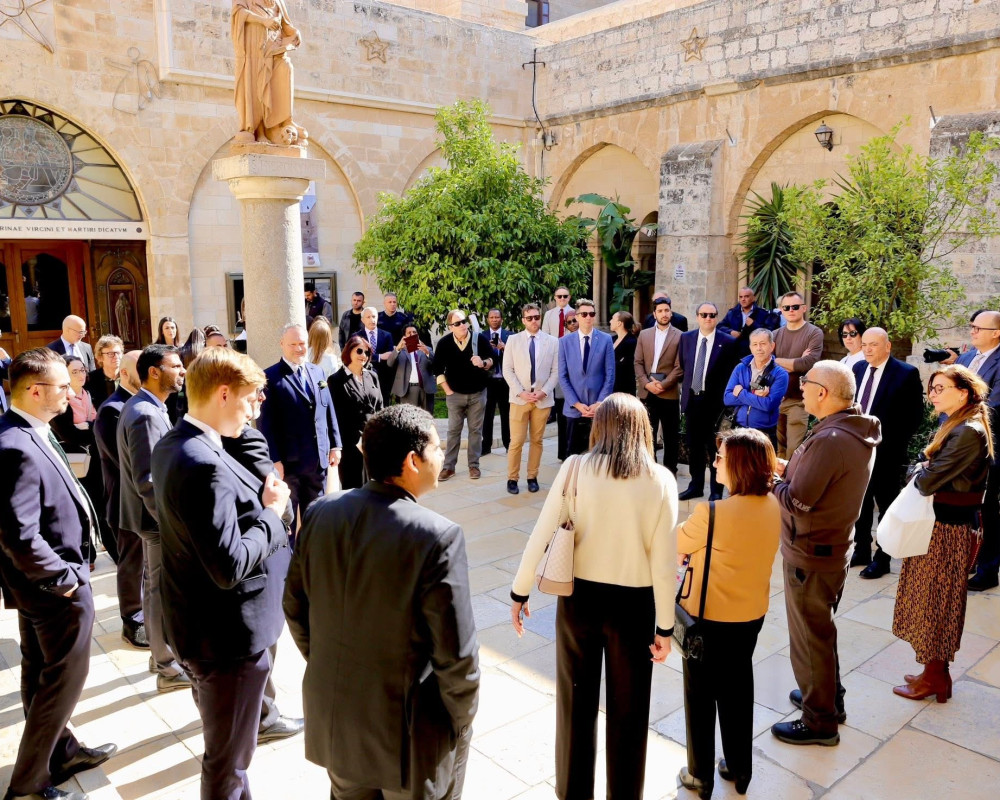
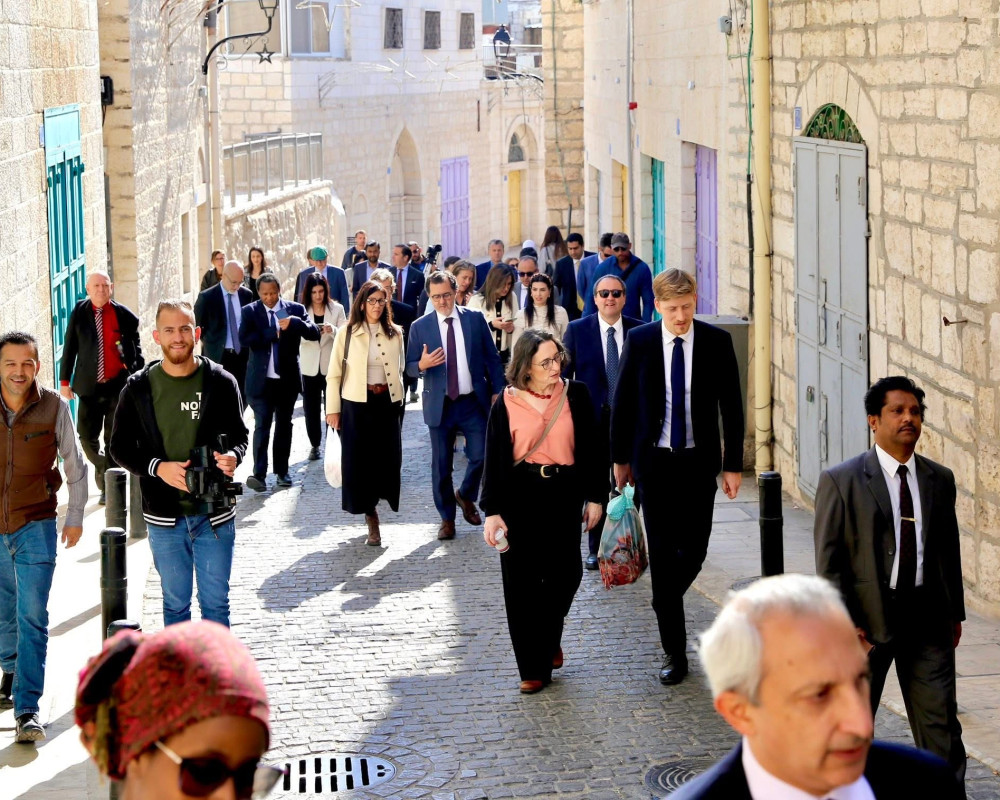
The tour, which included dozens of diplomats and representatives of international institutions, featured stops at the Walled-Off Hotel, the Palestinian Heritage Museum, the Church of the Nativity, Star Street and the Saint Elias Hotel. Minister of Tourism and Antiquities Hani Hayek, Bethlehem Governor Mohammad Taha Abu Alia, and Bethlehem Mayor Maher Qanawati accompanied the delegation, briefing them on the ministry’s and private sector’s efforts to attract tourism groups from around the world and to strengthen direct cooperation between Palestinian tourism institutions and their counterparts abroad.
Palestinian Tourism Minister Hayek highlighted the ministry’s international outreach efforts to reaffirm that Palestine is ready to welcome visitors from all countries. “Bethlehem in particular, and Palestine in general, are safe and fully prepared to receive tourists from across the world,” he said.
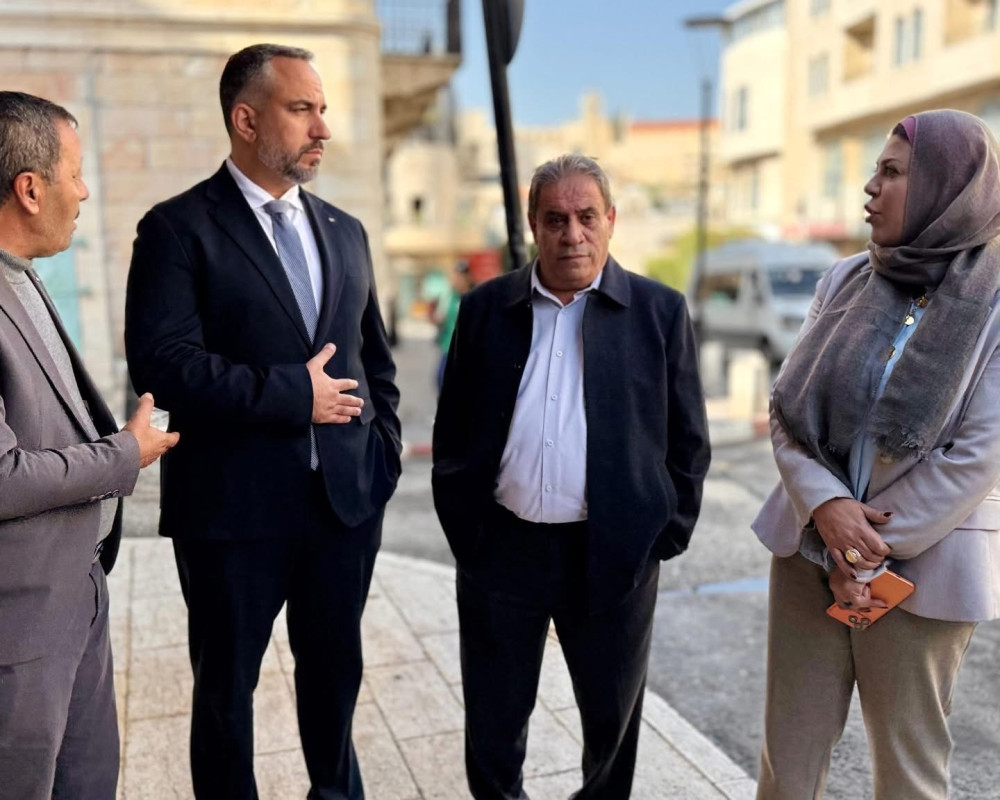
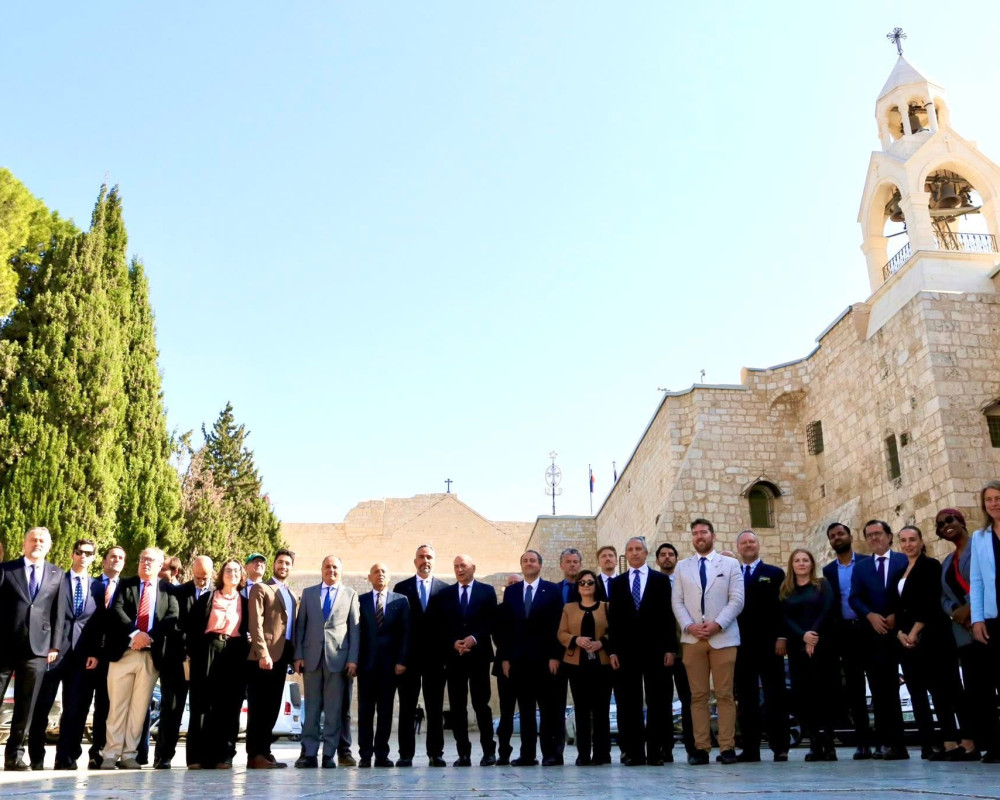
Hayek said the ministry is working to restore tourism activity to its pre-crisis levels, noting that Palestine remains a beacon for travellers from diverse backgrounds. “By visiting Palestine, tourists can learn the truth about the Palestinian people — a hospitable nation rooted in this land and in its history,” he added.
He also briefed diplomats on the importance of the tourism sector to Palestine, describing it as one of the pillars of the national economy, a major source of national income, and a primary livelihood for many Palestinian families, as well as Palestine’s gateway to the world.
For his part, Bethlehem Governor Mohammad Taha Abu Alia underscored the significance of the tourism sector as an essential platform for presenting the history and identity of the Palestinian people to the world.
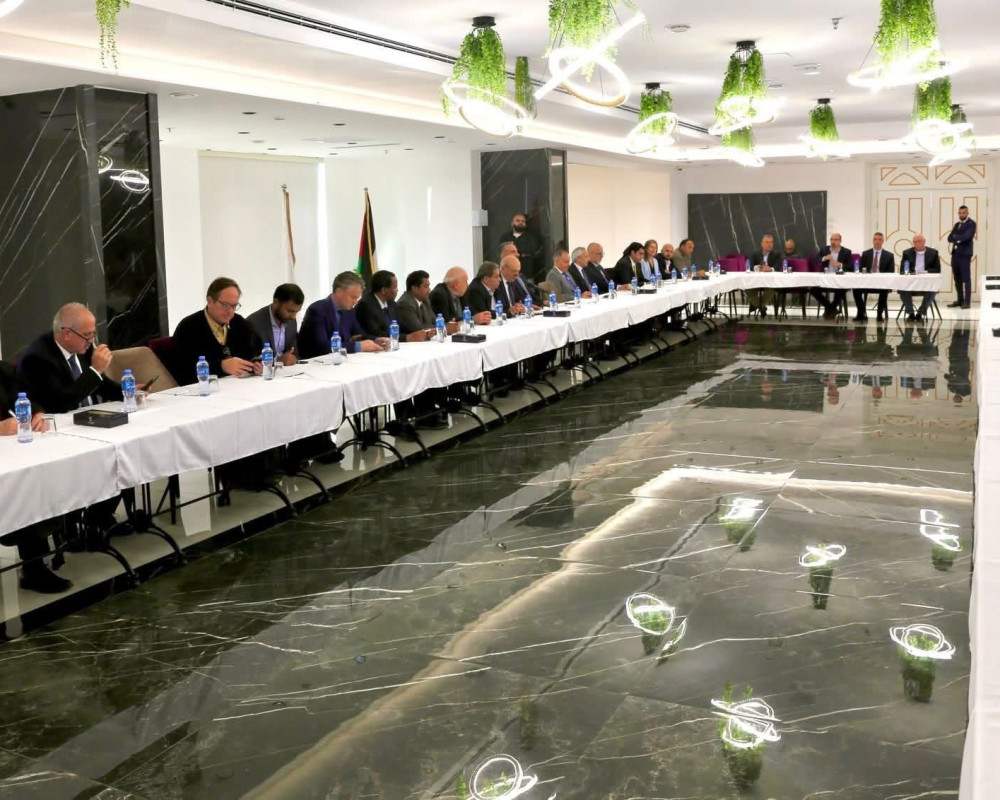
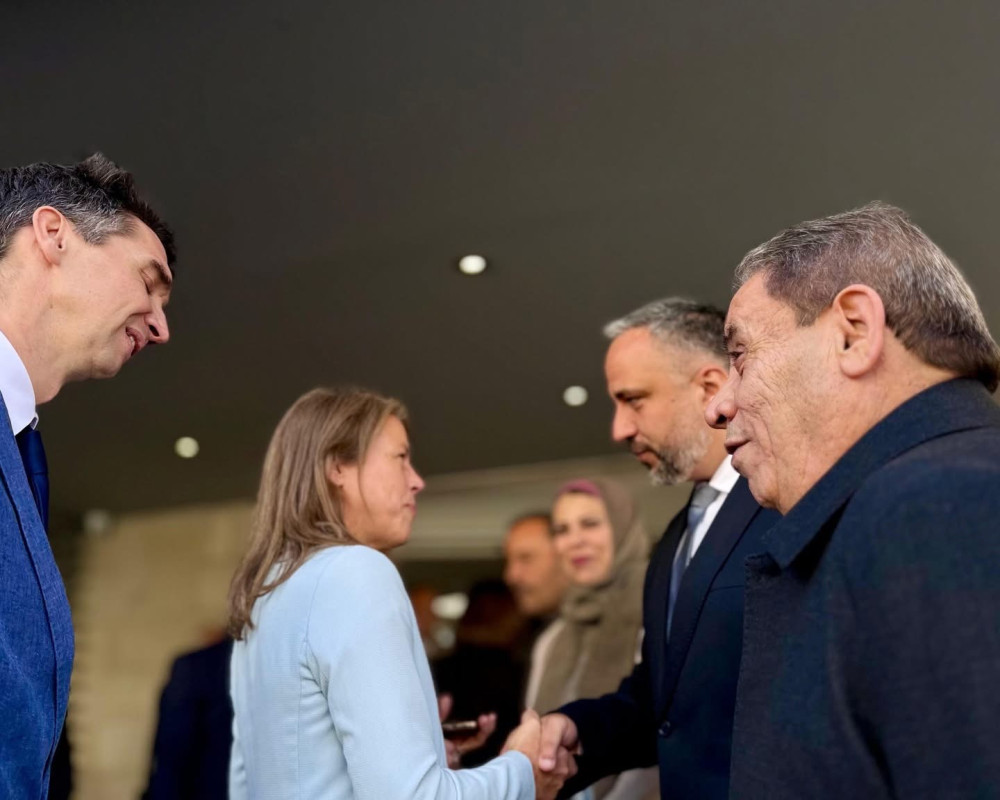
He praised the Ministry of Tourism and Antiquities for enhancing Palestine’s presence on the global tourism map, saying the sector plays a vital role in conveying the Palestinian narrative and showcasing success stories that reflect the resilience of Palestinians and their attachment to their land and heritage.
Bethlehem Mayor Maher Qanawati reaffirmed the city’s readiness to welcome tourists from all corners of the world, noting that the people of Bethlehem warmly receive visitors and tourism groups. He thanked the Ministry of Tourism and Antiquities for its efforts to promote the Palestinian tourism sector internationally.
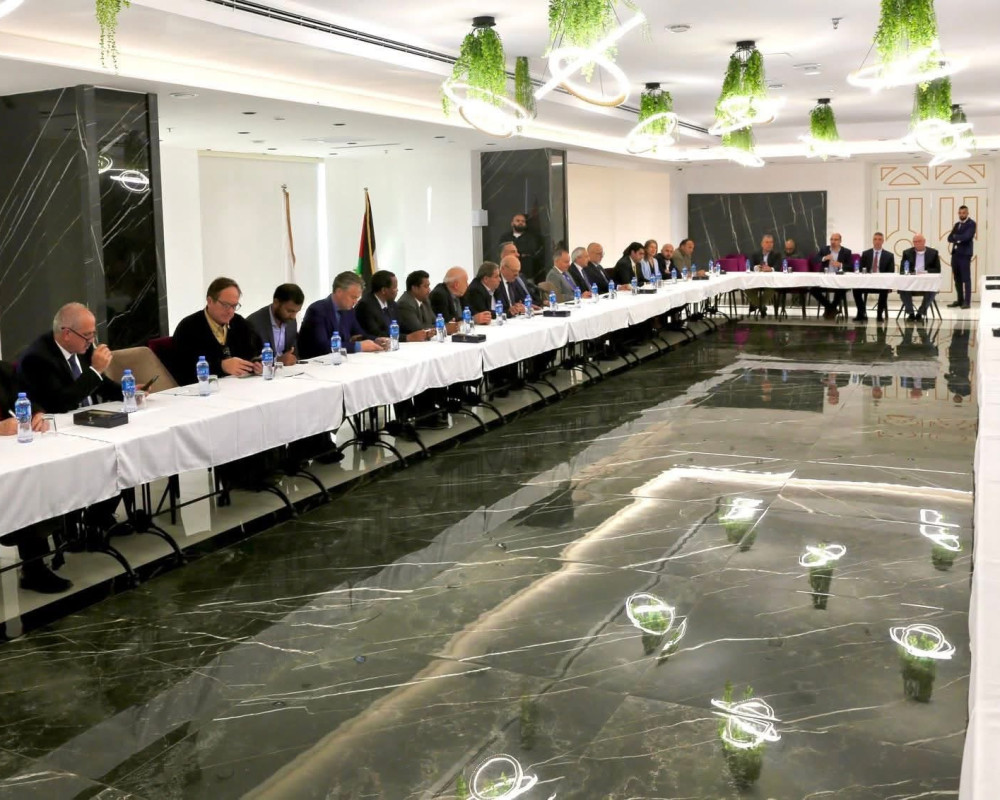
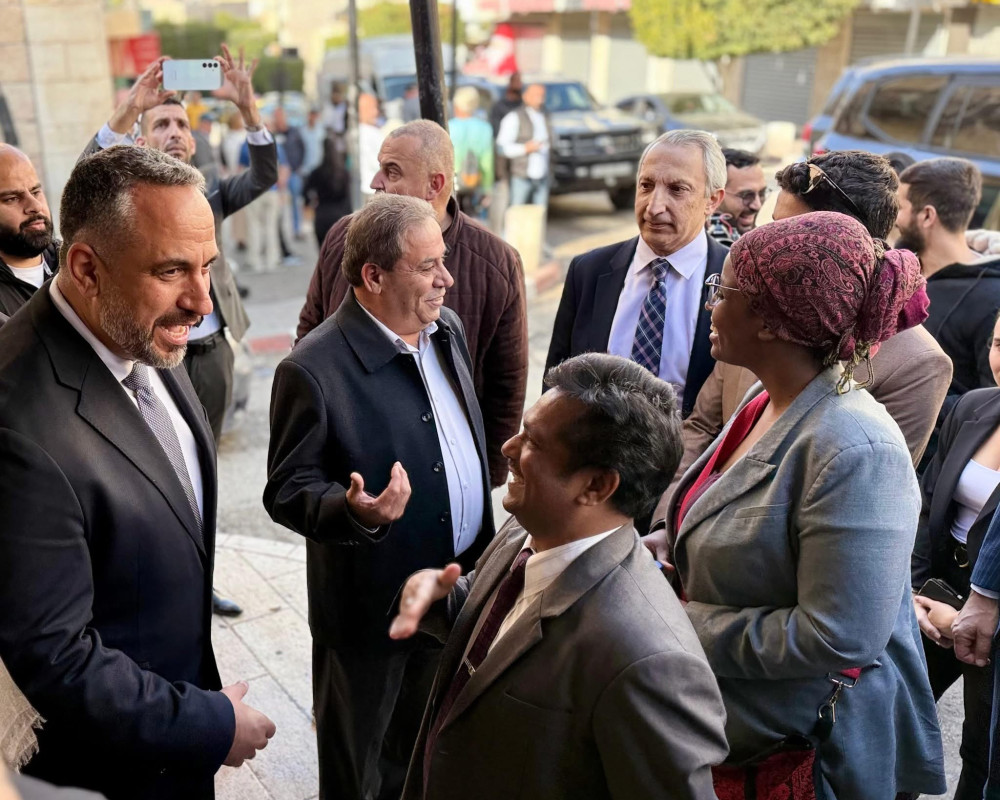
Source link
#Foreign #Diplomats #Tour #Bethlehem #Voice #Support #Reviving #Palestines #Tourism #Sector
-
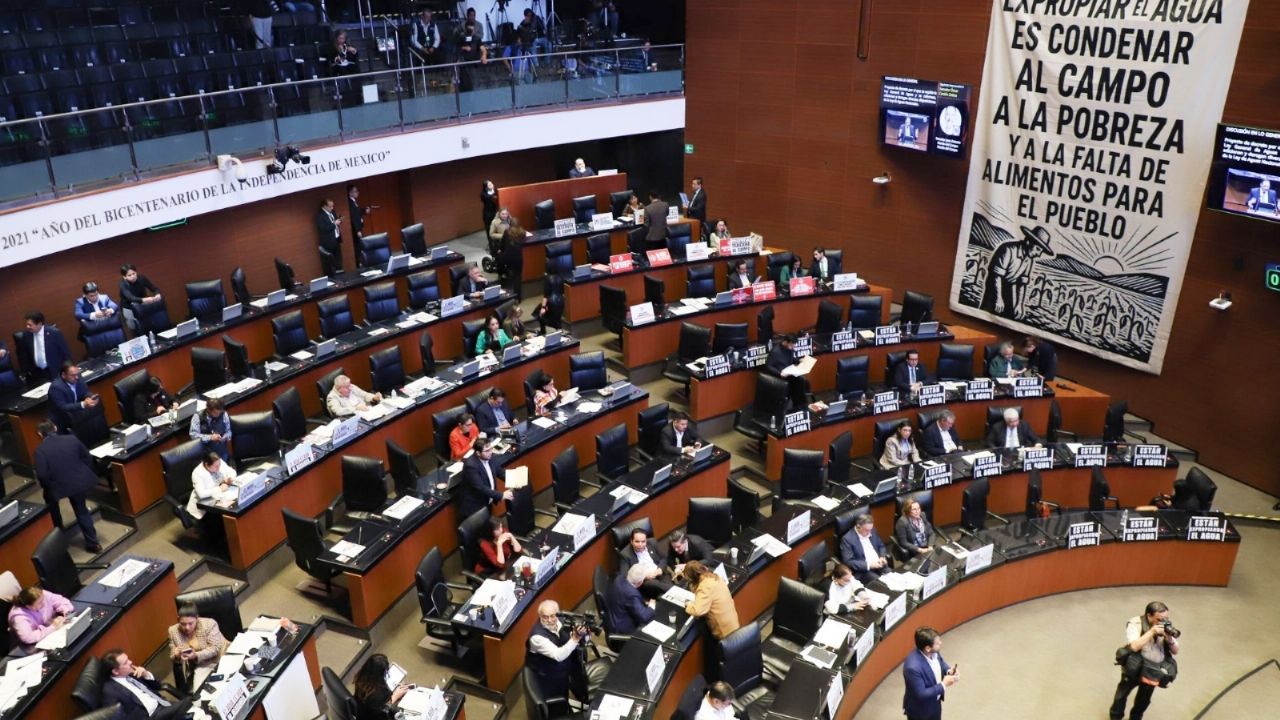
 United States1 day ago
United States1 day agoIn an accelerated procedure and without modifications, the Senate approves the minutes of the Water Law
-

 United Kingdom1 day ago
United Kingdom1 day agoEdinburgh Airport flights grounded as travelers see plans scuppered due to IT glitches
-
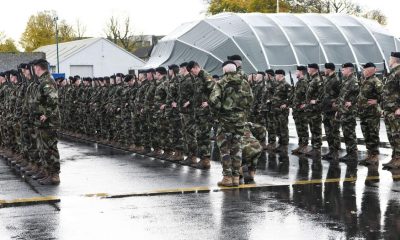
 Ireland1 day ago
Ireland1 day agoIrish peacekeepers “realized” after coming under fire in Lebanon
-

 United States1 day ago
United States1 day agoLeBron James’ 19-year double-digit scoring streak ends – VIDEO
-

 Ireland1 day ago
Ireland1 day agoWatchdog brings forward deadline for car finance companies to deal with complaints – The Irish News
-
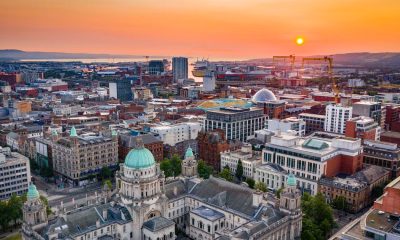
 United Kingdom1 day ago
United Kingdom1 day agoA region of the UK where house prices are soaring – while prices stagnate elsewhere
-

 News & Knowledge / Facts1 day ago
News & Knowledge / Facts1 day ago3.3 million retirement savers facing salary sacrifice changes
-
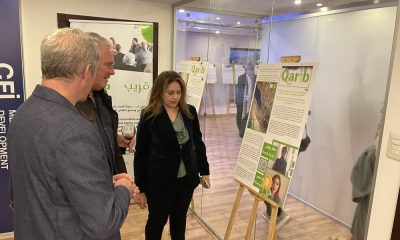
 Middle East7 hours ago
Middle East7 hours agoCFI Unveils Climate and Environment Media Works From Jordan, Palestine, Lebanon and Iraq

